75 CERPs IBCLC Recertification Education Bundle
Your IBCLC Recertification CERPs All in One Easy Step!
Your 75 CERP Bundle Includes:
- 74 Presentations by 69 Speakers
- Covers your IBCLC Recertification by CERP Requirements including all 70 L-CERPs (Lactation) & 5 E-CERPs (Ethics) including 2 WHO Code focused hours.
- A Minimum of 5 CERPs for each of the IBCLC Detailed Content Categories to Satisfy Your Personalized Professional Development Plan
- Weighted topics in each category to align with the IBCLC Detailed Content Outline
- Unlimited On-Demand Access for 1 Year
Elevate your expertise with our comprehensive 75 CERP IBCLC recertification bundle. We understand the value of continuous learning and the challenge of meeting recertification requirements. That's why we proudly present our meticulously crafted package, tailored to fulfill all your IBCLC recertification needs. With a focus on convenience and comprehensiveness, this package equips you with the knowledge you need in one seamless solution.
We recognize the importance of a well-rounded education. That's why our package includes a minimum of 5 CERPs in each of the key topic areas identified in the PPDP:
I. Development and Nutrition: 11.25 L-CERPs
II. Physiology and Endocrinology: 6 L-CERPs
III. Pathology: 14.5 L-CERPs
IV. Pharmacology and Toxicology: 6 L-CERPs
V. Psychology, Sociology, and Anthropology: 8 L-CERPs
VI. Techniques: 10 L-CERPs
VII. Clinical Skills: 14.25 L-CERPs and 5 E-CERPs
Don't miss out on this opportunity to streamline your recertification process while enriching your knowledge and skills. Join us on GOLD Learning and embark on a comprehensive learning journey!
To ensure the best learning experience:
- Please confirm you haven't already taken any of these lectures in this bundle, before purchase.
- Click on Accreditation Details below to see a complete list of activities these presentations were originally a part of.
- If you encounter any issues after purchase, please reach out to [email protected] and we'll find a suitable replacement for you.


Dr. Kelly McGlothen-Bell is an Assistant Professor at UT Health San Antonio, School of Nursing. As a nurse scientist, Dr. McGlothen-Bell is dedicated to understanding and resolving perinatal-infant health disparities in underrepresented groups, particularly among mother-infant dyads impacted by substance use disorders and preterm births. Dr. McGlothen-Bell uses interdisciplinary research, bio-behavioral methodologies, and community-engaged strategies to define and explore health priorities that can be remedied through culturally appropriate and sustainable health solutions. Her program of science focuses on understanding the relationship between infant feeding behaviors and readiness in high-risk infants and attunement between the primary caregiver and child during infancy and toddlerhood. The culmination of these findings contributes to the development of evidence-based interventions geared toward improving parental engagement and pediatric feeding success in marginalized populations. Dr. McGlothen-Bell has published numerous peer-reviewed articles related to developmental strategies for high-risk infants. She has also presented her work at conferences nationally and internationally. Dr. McGlothen-Bell has received numerous awards to include the 2019 National Association of Neonatal Nurses (NANN) Mentee/Mentor Grant Award. She was also selected as a 2019-2020 Academy Jonas Nurse Policy Scholar.
Topic: Feeding Behaviors in the Opioid Exposed Infant - [View Abstract]
Objective 1: Summarize current breastfeeding recommendations for women receiving medication-assisted treatment (MAT) for opioid use disorder (OUD).;
Objective 2: Identify common barriers and facilitators to breastfeeding among women receiving MAT for OUD.;
Objective 3: Describe specific strategies lactation supporters can use to empower breastfeeding in women receiving MAT for OUD.;
Objective 4: Explain how policies can be adapted to better support breastfeeding in women receiving MAT for OUD.
Inequitable access to mother's milk often disempowers those who may benefit the most from it's' benefits. Moreover, suboptimal breastfeeding has the potential to negatively impact the health and well-being of future generations to come. Mother's own milk is internationally accepted as the most optimal source of nutrition for infants, yet breastfeeding initiation and duration rates among minority populations (i.e., women with opioid use disorders [OUDs]) continue to lag significantly behind that of the general population. The implications of the current U.S. opioid crisis and its increasing influence on women of reproductive age presents important considerations for the ways women and infants may receive inequitable access to breastfeeding and the benefits of mother's milk. In this presentation, learn the keys needed to empower lactation support providers to advocate for the use of scientific evidence that informs breastfeeding practices for women receiving MAT for OUD.
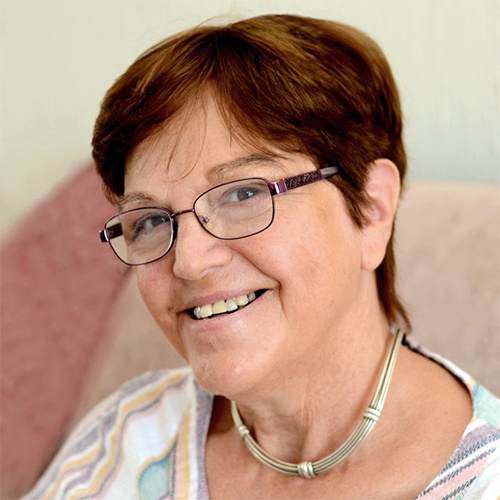

In her employed life Wendy was a community pharmacist and also worked in doctor surgeries supporting cost effective, evidence-based prescribing.
Wendy left paid work to concentrate on writing Breastfeeding and Medication (Routledge 2nd edition 2018), developing information and training material on drugs in breastmilk as well as setting up her own website www.breastfeeding-and-medication. She has also published Breastfeeding for Dads and Grandmas (Praeclarus Press) and Why Mothers Medication Matters (Pinter and Martin). She is also co editor of a book to be published January 2020 called A guide to breastfeeding for medical professionals (Routledge).
Wendy is known for her work on providing a service on the compatibility of drugs in breastmilk and has been a breastfeeding peer supporter for 30 years. She is passionate that breastfeeding should be valued by all and that medication should not be a barrier. She has 3 daughters and 5 grandchildren. All her family seem as passionate about breastfeeding as she is and currently all 3 of her daughters are breastfeeding.
She was awarded a Points of Light award by the Prime Minister in 2018 and nominated for an MBE in the New Year's Honours List 2018 for services to mothers and babies. She received her award at Windsor Castle in May 2019 from Her Majesty the Queen.
Topic: Medication and Breastmilk in the NICU - [View Abstract]
Topic: Pharmacokinetics and Clinical Implications of Drugs in Human Milk: The Substance-Exposed Infant - [View Abstract]
Objective 1: Explain the pharmacokinetics of substances to which babies may be exposed through breastmilk.
Objective 2: Assess whether breastfeeding can be continued following exposure.
Objective 3: Discuss how we may support the breastfeeding mother who is using substances during her lactation
We are aware that an increasing number of babies are exposed to opiates, to methadone, to cannabis and cocaine through maternal breastmilk. In this presentation, I will discuss the pharmacokinetics of the medications and how this impacts the clinical care of the babies both immediately after delivery and later on. We need mothers to be open and honest about any drugs which they have taken in order that we may care for the baby appropriately if it is exhibiting clinical symptoms. This impacts on safeguarding issues but our aim should be to help the mother consider the impact on her baby using evidence-based information and to maintain breastfeeding appropriately. What are the long- and short-term implications of exposure for mother and baby? Is there sufficient research? As always, more questions than answers.


Catherine Watson Genna BS, IBCLC is an International Board Certified Lactation Consultant in private practice in New York City. Certified in 1992, Catherine is particularly interested in helping moms and babies breastfeed when they have medical challenges and is an active clinical mentor. She speaks to healthcare professionals around the world on assisting breastfeeding babies with anatomical, genetic or neurological problems. Her presentations and her writing are enriched by her clinical photographs and videos. Catherine collaborates with Columbia University and Tel Aviv University Departments of Biomedical Engineering on research projects investigating the biomechanics of the lactating nipple and various aspects of sucking and swallowing in breastfeeding infants. She is the author of Selecting and Using Breastfeeding Tools: Improving Care and Outcomes (Praeclarus Press 2009) and Supporting Sucking Skills in Breastfeeding Infants (Jones and Bartlett Learning 2008, 2013, 2017) as well as professional journal articles and chapters in the Core Curriculum for Lactation Consultant Practice and Breastfeeding and Human Lactation. Catherine served as Associate Editor of the United States Lactation Consultant Association’s official journal Clinical Lactation for its first seven years.
Topic: Breastfeeding Strategies for Tongue-tied Infants - [View Abstract]
Topic: Critical Assessment of Apparent Tongue-Tie - [View Abstract]
Topic: Introduction to Cervical Auscultation - [View Abstract]
Topic: Lactation Support for Infant Biomedical Challenges - [View Abstract]
Topic: Organization of tongue movements before and after frenotomy for posterior tongue-tie: an Ultrasound analysis - [View Abstract]
Topic: Positioning and Latch for Breastfeeding - [View Abstract]
Topic: Ultrasound Analysis of Sucking: Tongue-Tie and Confounders - [View Abstract]
Topic: Using Breastfeeding Supplementers - [View Abstract]
1. Describe how to perform cervical auscultation as part of a breastfeeding assessment.
2. Define the auditory characteristics of a normal swallow, a normal breath, and efficient suck:swallow patterning.
3. Explain how cervical auscultation can be used to guide feeding management in infants at risk of ineffective breastfeeding.
Cervical Auscultation (listening with a stethoscope over the baby’s neck or chin during feeding) is a useful tool for lactation consultants in assessing suck:swallow:breathe rhythms and coordination. This presentation uses recorded sound files of cervical auscultation of breastfeeding infants to illustrate some uses of this technique for breastfeeding assessment, clinical problem solving, and identifying dyads who require referrals for speech/feeding therapy or medical care.
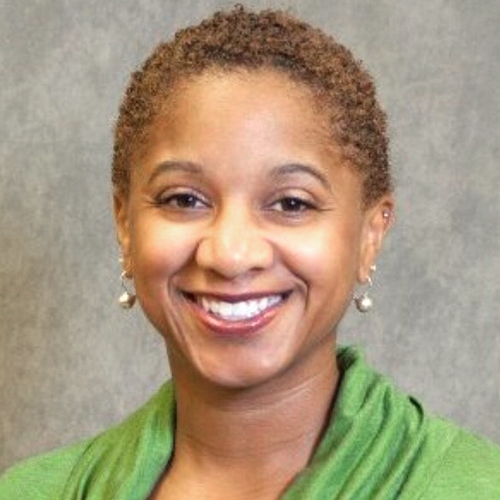

Jada Wright Nichols is an Atlanta-based women’s wellness consultant. She graduated from Tennessee State University, with a bachelor’s degree in speech pathology and audiology. She has a master’s degree in occupational therapy and has worked in a variety of rehabilitation settings, across the life-span.
Additionally, she is a massage therapist, lymphedema therapist, holistic nutritionist, birth and postpartum doula, yoga instructor, and international board-certified lactation consultant (IBCLC). She is a lactation consultant at Children’s Healthcare of Atlanta, and the owner of Blossom Health and Maternal Wellness, and Bloom Early Intervention, which provide in-home and virtual services for new and expectant families, as they navigate various aspects of parenting, access, and equity.
1. Describe the neurodevelopmental deficits that may interfere with successful breastfeeding
2. Describe opportunities to assess and strengthen nuerodevelopmental delays that impact breastfeeding
3. List equitable ways to facilitate advanced breastfeeding support In any setting
Suck swallow breathe coordination is one of the earliest and most meaningful motor milestones of a developing infant. That level of coordination varies between breastfeeding and bottle feeding. Too frequently, if there are any challenges while feeding at the breast, bottle feeding is recommended, often without a complete assessment around the challenge itself. Infant feeding may be disorganized for one of a variety of contributing factors. It is important to be able to identify one or more of those factors, and to facilitate a solution, which may include seeking the insight and intervention of another allied health professional. Honing observation skills, incorporating diagnostic tools, and coordinating feeding assessments and protocols with specialists assist in preserving the initial breastfeeding relationship, with equity.


Mariana Colmenares Castano was born in Mexico City, and from an early age she was fascinated by animals and nature.She studied medicine at the National University of Mexico (UNAM), and foundher passion as a pediatrician doing her residency at the National Pediatric Institute. When her first child was born she witnessed the lack of knowledge and commitment to breastfeeding within the medical profession, and so she decided to specialize in breastfeeding medicine. She certified as a Lactation Consultant (IBCLC) in 2011.Mariana is a member of the International Lactation Consultant Association, the Academy of Breastfeeding Medicine, and a proud founding member of the National Lactation Consultant Association of Mexico (ACCLAM), where she served on the Board of Directors as Education Coordinator (2014-2019). She is part of board director for the Academy of Breastfeeding Medicine for a 3 year period (2019-2022) and recently named as secretary for the Academy of Breastfeeding Medicine. Mariana is a member of the team for Breastfeeding Country Index BFCI, a project from Yale University and Universidad Iberoamericana. She is consultant for the National Health Institute in Mexico and has collaborated with UNICEF in breastfeeding projects and part of the steering committee for the WHO. She has spoken at national and international conferences, co-published numerous articles and co-authored a chapter for the National Academy of Medicine. At the moment she is a Clinical Fellow in Community Paediatrics in London.
Topic: Breastfeeding The Baby With Congenital Heart Disease - [View Abstract]
Topic: Breastfeeding with Insufficient Glandular Tissue - [View Abstract]
Topic: Clinical Assessment and Management of Jaundice in the Newborn - [View Abstract]
Topic: Oral Colostrum Care as an Immunological Intervention in the NICU - [View Abstract]
Objective 1: Describe the theoretical framework that can give us useful information for a timely and appropriate diagnosis of Insufficient Glandular Tissue;
Objective 2: Demonstrate and support the best way possible for the dyad to achieve a healthful breastfeeding experience;
Objective 3: Apply useful tools that can help achieve the personal goals
Breastfeeding is the normative way to feed babies all over the world. We have access to a large amount of scientific evidence that supports it. Advocates of breastfeeding such as health care professionals that protect, promote and support the breast/chest feeding dyad can struggle sometimes with women or babies who cannot breastfeed as the World Health Organization suggests. Mothers with low milk supply are often supported by family, friends and health care with well meaning advice and remedies to help them do their best. Women who have insufficient glandular tissue (IGT) struggle with their milk supply, despite good breastfeeding management. It is common to see families with this issue during their second or third lactation failure without really understanding what might be going wrong. These babies can have dehydration in the neonatal period, hypernatremia or even death without anybody that could help with a correct diagnosis or help with achievable goals that can benefit both mother and baby. It is of great importance to help with accurate diagnosis that can also benefit psychologically and can help parents choose to continue breastfeeding with breast/ chest supplementation.
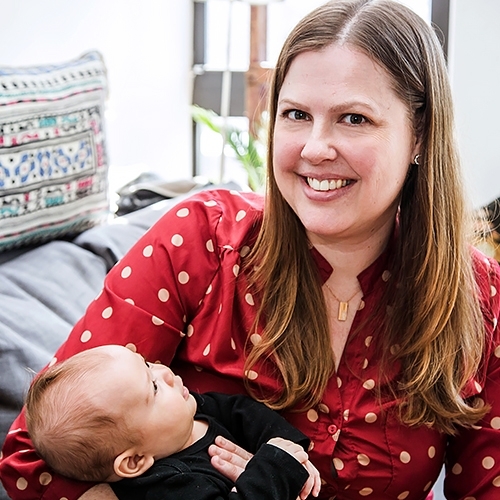

Annie Frisbie has been an IBCLC in private practice since 2011. Her background is in media, where she worked very closely with producers, content developers, and tech thought leaders on business strategy, content development, contracts, legal clearances, and more. She has also produced training for professional media software solutions as well as created and managed print and video content for media professionals.
In 2018 she was honored with the US Lactation Consultant Association's President's Award, "awarding those that demonstrate extraordinary service to the association and profession."
She is a produced screenwriter and proud member of the Writers Guild of America, East. She have a BA from Franklin and Marshall College, and an MA in Cinema Studies from New York University. In a previous life I was a film critic. I live with my husband and our two children in Queens, New York.
Topic: The Ethics of Digital Privacy and Lactation Practice - [View Abstract]
Objective 1: Define privacy as a general concept and as it applies to access and handling of digital information and describe the most common threats to privacy in the digital space. Includes comparison of large-scale global approaches to digital privacy, including HIPAA, GDPR, PIPEDA, and other national and regional legislative efforts.;
Objective 2: Explain why protecting digital privacy is both an ethical obligation and a key element of improving equity in the healthcare space and demonstrate the common ways in which health care providers may put patient/client privacy at risk, along with the consequences to both patient and health care provider.;
Objective 3: List specific action items that can be implemented immediately to protect the digital privacy of patients/clients.
As healthcare providers incorporate technological solutions into their practices, they also face the increasingly complex task of protecting the privacy of their patients/clients. Some countries have laws in place that healthcare providers need to understand and follow, but all healthcare providers regardless of practice setting have an ethical responsibility to maintain rigorous standards when it comes to digital privacy.
Because technology changes so rapidly, keeping up-to-date with privacy regulations proves challenging for both large institutions and solo practitioners. Lactation must also be concerned with the privacy of more than one entity while serving a patient base that may have already faced numerous privacy and consent violations during pregnancy and childbirth. By valuing the privacy of lactating persons and their children, legal, ethical, and moral obligations can be met, enhancing client/patient autonomy and improving self-efficacy.
This session provides a framework for understanding digital privacy and privacy threats, and offers resources for implementing policies and procedures that protect patient/client privacy.


Paulina is the mother of three multicultural Latino children and Project Director for Lifespan Local. Paulina earned her BS in Psychology from the Pennsylvania State University, a MS in Organizational leadership from the University of Denver and is completing her PhD in Health and Behavioral Sciences at the University of Colorado - Denver. Paulina has over 18 years of experience working with families with young children. As a Maternal Child Health specialist for Jefferson County Public Health, she developed a NICU follow-up home visitation program and the pediatric emergency preparedness plan, co-founded and coordinated the Conectando Network (former Adelante Jeffco), established community navigation and lactation support groups focused on the Latino Spanish speaking community, and lead other initiatives to support leadership and partnerships among communities and organizations. During the COVID-19 pandemic, she managed the new program Whole Community Inclusion to ensure the pandemic response and recovery implementation included health equity practices that recognize the needs and the strengths of priority populations in the county. Her areas of current work include promoting perinatal and infant mental health along the continuum of care; building community capacity to navigate health and education systems; facilitating organizational change to embrace linguistic and culturally responsive practices; and establishing community-placed participatory programs to strengthen communities. She likes to be with people, learn from and with others, and connect passions for meaningful work.
Topic: From the NICU to the home: mother’s experiences - [View Abstract]
Topic: Leadership Skills in Lactation: Make Extraordinary Things Happen - [View Abstract]
Topic: Liderazgo en Lactancia - Para Alcanzar Metas Extraordinarias - [View Abstract]
Topic: Nursing A Preemie, Perspectives For Lactation Supporters and Professionals - [View Abstract]
Objective 1: Identify opportunities and challenges to establish lactation in the NICU; ;
Objective 2: Analyze the role of feedings in the context of infant development and parental role attainment;;
Objective 3: Identify strategies to support lactation for families with children with special needs and in a variety of contexts.
In this presentation participants will learn about parents’ experiences with feedings in the NICU and continuation of lactation after going home, the importance of parent-child mutual-regulation and its implication in feeding success, strategies for lactation professionals to support the nursing relationship, and infant mental health concepts in relationship to feeding.
This presentation will include qualitative and quantitative data to broaden participants understanding of the context of lactation with a premature baby or a baby with special medical conditions. The participants will also receive information about multidisciplinary approaches and initiatives to support families with preemie babies.


Philip O. Anderson, Pharm.D., FCSHP, FASHP is a Health Sciences Clinical Professor of Pharmacy at the UCSD Skaggs School of Pharmacy and Pharmaceutical Sciences where he heads the course on drug information.
Dr. Anderson has lectured and published extensively on drug use during breastfeeding including in professional journals and textbooks, including original research on drug excretion into breastmilk. Dr. Anderson founded the LactMed® database, which is part of the National Library of Medicine’s Bookshelf. He continues to write LactMed® records and to expand the database. He has authored the medication appendix to the popular handbook, The Nursing Mothers' Companion. Dr. Anderson is the Pharmacology Editor of the professional journal, Breastfeeding Medicine, and writes a monthly column on medication use during breastfeeding for the journal. He has also been a consultant to the US Food and Drug Administration on the topic of drug labeling with respect to use during lactation.
Objective 1: List 3 factors that increase infant impact of a drug in milk;
Objective 2: List 3 strategies to minimize infant intake of drugs in milk;
Objective 3: List the infant age range of greatest risk for drug ingestion while nursing.
Many mothers do not breastfeed their infants, discontinue breastfeeding or fail to take medications while they are breastfeeding. The principles of drug passage into breast milk are well established, although not well known by many health professionals. This presentation will review the principles of drug passage into breast milk, medications and factors that can cause a risk for adverse reactions in breastfed infants and discuss how to choose the most appropriate medications for mothers who are breastfeeding their infants.


Divya Sinha Parikh MD, IBCLC, FAAP is a board certified pediatrician practicing in Columbus, OH. She received her medical training at The University of Pittsburgh School of Medicine and completed her residency in general pediatrics at Rainbow Babies and Children’s Hospital at Case Western Reserve University. She formerly served on the Baby Friendly Hospital Initiative Committee at MetroHealth Hospital Systems in Cleveland, OH and created a breastfeeding medicine clinical rotation during residency. Within her practice, she has extensive experience managing lactation concerns and has taken a special interest in mentoring current and aspiring breastfeeding providers. She has presented her work at local and national meetings.
Topic: When Supply is Greater than Demand: Maternal Hyperlactation Syndrome - [View Abstract]
Objective 1: Define and explain the pathophysiology behind hyperlactation;
Objective 2: List the negative consequences of hyperlactation;
Objective 3: Demonstrate basic management of hyperlactation and indications for referral for medical evaluation.
The objectives of this lecture are to understand the definition, pathophysiology, and basic management of hyperlactation. Topics discussed will include proposed mechanisms leading to hyperlactation, health effects on mother and baby, and approach to diagnosis and management. Participants will learn key history and physical findings for hyperlactation, behavioral interventions to reduce milk supply, herbal and medical interventions to reduce milk supply, and will learn how to determine which dyads would benefit from medical intervention.
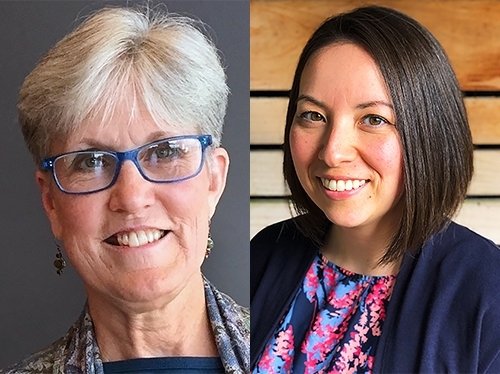

Dixie Whetsell, MS, IBCLC, has a Master’s Degree in Community Health Education from the University of Oregon. She began working with breastfeeding families in 1992 and became an IBCLC in 1998. She has worked as a lactation consultant in a variety of settings including private practice, county and state public health programs and high risk maternal and pediatric hospitals. She began teaching lactation training courses in 2003 and is currently an adjunct faculty member teaching in the Pathway 2 Lactation Training Program in the OHSU-PSU School of Public Health at Portland State University. She is a past presenter for the GOLD Perinatal Conference. She is an active member of the Oregon Washington Lactation Association, the US Lactation Consultant Association and the International Lactation Consultant Association. She was a founding Board Member for Northwest Mothers Milk Bank, a HMBANA non-profit donor milk bank.
Lisa Gonzales, BSN, RN, IBCLC earned her Bachelor of Science in Nursing from Linfield College. She started her nursing career as a Labor and Delivery nurse at a Level III OB hospital in 2006. After having her first baby, Lisa pursued lactation education and became an IBCLC in 2013. She made full career change in 2015 to become a lactation nurse in a high risk maternity and pediatric hospital, providing inpatient and outpatient consults to growing families. She is an active member of the Oregon Washington Lactation Association, the US Lactation Consultant Association and the International Lactation Consultant Association. Lisa currently helps families during in-home visits with her private practice.
Objective 1: Define what lactation anaphylaxis is, what the common symptoms are and when it is most likely to occur;
Objective 2: Describe common treatments for this condition and options for long-term medical management of this condition;
Objective 3: Discuss how this condition can impact the breastfeeding relationship and how an IBCLC can best support a breastfeeding parent that experiences this condition.
This case describes a 32-year-old primiparous woman who experienced an anaphylactic reaction associated with breastfeeding and milk expression on postpartum day four. With each episode her symptoms worsened and she developed hives, edema and difficulty breathing and swallowing. She had to be treated for her anaphylactic reaction in a hospital ER and ICU and she was released on postpartum day five on antihistamines.
Lactation anaphylaxis is a very rare condition that was first reported in the scientific literature in 1991. Since then there have been 11 other reported cases. Lactation anaphylaxis can be life-threatening and symptoms can include a rash, hives, edema resulting in difficulty breathing or swallowing, a dangerous decrease in blood pressure and a loss of consciousness. We will review this case and do a brief review of the previous case reports. We will discuss the possible causes for lactation anaphylaxis, the related risk factors, common treatments and possible breastfeeding outcomes. In most cases with proper treatment and management breastfeeding and milk expression can continue. Enhanced awareness of and knowledge about this rare condition will allow lactation consultants and other members of the health care team to better support breastfeeding parents who experience lactation anaphylaxis.


Ted Greiner received a PhD in nutrition for developing countries from Cornell University. For 19 years he worked as nutrition advisor for the Swedish International Development Cooperation Agency, based at Uppsala University where he was Associate Professor of International Child Health, helping to ensure their long-term support for IBFAN and WABA. Dr. Greiner was Professor of Nutrition at Hanyang University in South Korea for seven years. He has consulted for UNICEF, World Bank, FAO and others. He is now retired and edits the journal World Nutrition. He has lived in 8 countries and worked in 10 more. His areas of research expertise include infant feeding and programs to combat vitamin A, iron and iodine deficiency. In the 1970s, he did the first scientific work on the impact of baby food advertising on breastfeeding patterns. His PhD dissertation was on the planning and evaluation of a 1978-81 project to protect, support and promote breastfeeding in Yemen (terminology quickly adopted by UN agencies). Over the next decades, the duration of breastfeeding there doubled. During the planning the Innocenti meeting, he represented Sida, one of the 4 agencies involved. He was active in changing how WHO viewed HIV and infant feeding. He has over 100 breastfeeding-related publications.
Delegates will be able to:
1: Discuss the scientific literature on alcohol's effects on breastfeeding and ways in which alcohol exposure may affect infants
2: Rate the quality of advice on alcohol consumption during breastfeeding by health professionals and organizations
3: Interpret the scientific literature on this and other issues
Moderate alcohol use by breastfeeding women appears to be relatively common. Alcohol concentrates in breast milk at levels similar to maternal blood, peaking at 30-60. Most studies find no link with the duration of breastfeeding. However, seven studies have found a link with a shorter duration of exclusive breastfeeding. Alcohol affects oxytocin release, leading to reductions in breast milk consumption in the following hours and reduces infant sleep, both temporary if the mother does not continue to drink. These effects on the infant and the breastfeeding process could be interpreted by mothers as signs of infant dissatisfaction with their breast milk, “insufficient milk,” or other causes for premature supplementation. Chronic alcohol consumption may have a number of more serious effects, including on infant development, but research is limited. Younger infants tolerate alcohol worse, so abstention or avoidance of infant exposure for the first months of breastfeeding may be wise. Messages to mothers on this issue are conflicting, confusing and often outdated. Too little is done to teach mothers how to reduce infant exposure. Research is needed in different cultures into whether various forms of cautionary messages are likely to discourage breastfeeding.


Dr. Sharon Unger comes from the East Coast of Canada and is a neonatologist at Sinai Health System in Toronto, Canada. She is a co-primary investigator for the Canadian Institutes of Health Research funded OptiMoM and MaxiMoM programs of research as well as the medical director for the Rogers Hixon Ontario Human Milk Bank. Her research interests are primarily in the use of human milk for the high risk neonate and its long term impact.
Delegates will be able to:
1: Discuss the differences between mother's milk and human donor milk
2. Discuss the scientific evidence behind current human donor milk usage guidelines
3. Discuss some of the ethical considerations in human donor milk use
Mother’s milk is the unequalled nutritional source for the preterm or medically fragile neonate. Beyond its nutritional impact, it contains a myriad of bioactive molecules that are of particular health importance for the sick neonate. A majority of mothers who are pump dependent with an infant in a neonatal intensive care unit have an incomplete supply of their own milk. In this instance, human donor milk is an important supplement to have available while the mother is supported to increase her own milk supply. This lecture will focus on various aspects of the use of human donor milk including a review of the differences between mother’s milk and donor milk and the current methodologies used for processing donor milk. Recommended clinical guidelines will be discussed that are based on the evidence for short and long term health outcomes following the use of donor milk in the neonatal period. Future considerations will be explored including ethical issues with respect to donor milk use.
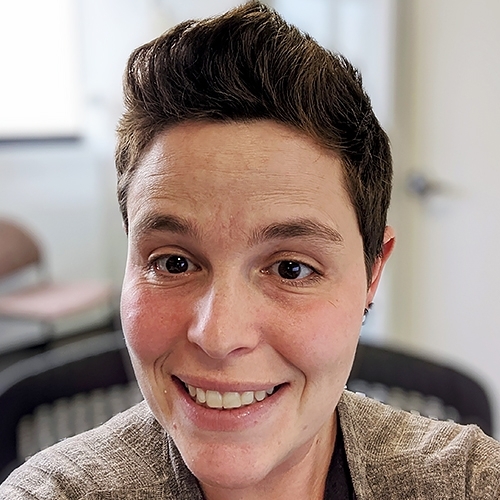

Rebecca LR Powell, PhD, CLC is an Assistant Professor in the department of Medicine, Division of Infectious Diseases, at the Icahn School of Medicine at Mount Sinai Hospital. Currently Dr. Powell is analyzing the phagocytosis responses of various cell types to better understand the effects of phagocytosis receptor profiles and the impact of antibody specificity on the elicitation of biologic function. Additionally, Dr. Powell is studying the contribution of breast milk leukocytes to the relatively low rate of HIV transmission in infants exclusively breastfed by their HIV-infected mothers. She received her PhD in Microbiology from the Sackler Institute, New York University School of Medicine, and her CLC from the Healthy Children Project.
Objective 1: Explain how breast milk is both a vehicle for mother-to-child transmission of HIV and also protects against transmission;
Objective 2: List the cellular components of human breast milk;
Objective 3: Describe how maternal cells can be isolated from breast milk and used for analysis of their anti-viral functions.
Unless access to clean water and appropriate infant formula is reliable, the World Health Organization does not recommend HIV-infected mothers stop breastfeeding. Remarkably, only about 15% of babies exclusively breastfed by their HIV-infected mothers become infected with HIV. This suggests that although breast milk is a vehicle for HIV transmission, the milk itself exhibits a strong protective effect against infection. Breastfed babies ingest 100,000 - 100,000,000 maternal cells every day via breast milk; what remains largely unclear is the contribution of these cells to the milk’s anti-viral qualities. A large study has been undertaken to isolate cells from human milk in order to measure the ability of these cells to engulf and destroy HIV by a mechanism known as phagocytosis. Over 50 samples of breast milk obtained from healthy women have been analyzed. Phagocytosis of HIV was detected in all samples. Activity did not appear to correlate with stage of lactation. Various cell types known for phagocytic capacity were identified and measured, including granulocytes, monocytes, macrophages, and dendritic cells. All samples exhibited strong granulocyte activity.These data further demonstrate that phagocytosis of HIV by immune cells from breast milk can be measured. This information will be critical for design of therapeutic vaccines capable of reducing the likelihood of mother-to-child transmission of HIV in areas where breastfeeding is essential.


A Canadian living in France for more than 25 years, Juanita discovered breastfeeding with her three children and has never looked back.
She became a La Leche League Leader in 1997, and served on the boards of LLL France 2004-2008 and LLL Europe 2011-2018. She has been the regional representative of LLL Europe to WABA since 2007. Juanita became a lactation consultant in 2003 (IBCLC), recertifying in 2008 and 2013.
Juanita was the coordinator for the Journée Internationale de l’Allaitement (‘JIA’ – International Breastfeeding Conference for health professionals organized by LLL France) in 2003 and 2008. She helped create and implement the Peer Counsellor Programme in France (Programme relais allaitement- Prall).
The WHO Code is one of her passions! She has spoken on the Code at conferences around the world. Member of the Coordination française pour l’allaitement maternel (CoFam) since 2007, she was head of the Task Force on the Code and ethical questions. As a member of IBFAN *and GIFA, she was given the opportunity to participate in international meetings of the Codex Alimentarius and the OECD in Paris, as well as in week-long IBFAN conferences in Montecatini, Italy in 2007, and in Geneva in 2008. She also attended the Committee on the Convention on Rights of the Child in Geneva for IBFAN and helped prepare a country report on France underlining the importance of breastfeeding and the need to apply the Code (2009). She is an active member of IBFAN’s Global Working Group on Contaminants in Breastmilk. In 2018, she represented LLLI at the second NetCode meeting in Geneva.
Objective 1: Cite three key international documents directly referring to the International Code;
Objective 2: Define the products now considered to be breastmilk substitutes according to the Guidance on the inappropriate promotion of foods for infants and young children.;
Objective 3: Describe conflict of interest with industry as defined by the Code and cite three specific types of conflict of interest.
The International Code on the Marketing of breast milk substitutes is the very cornerstone of breastfeeding protection, promotion and support, and an integral part of infant and young feeding policies around the world; yet it is often misunderstood or considered to be an out of date document with little relevance to breastfeeding issues today. Nothing could be further from the truth. The Code is updated regularly with additional resolutions voted at World Health Assemblies every two years, and covers far more than the marketing of breast milk substitutes in the first six months of life, but promotes optimal nutrition practices up to 36 months, and addresses conflict of interest with infant food companies. Indeed, the rapidly growing global market of breast milk substitutes, estimated at more than $70 billion in 2019, continues to undermine breastfeeding through its evermore aggressive and omnipresent marketing techniques, focused on parents, health professionals and health systems. The stakes are high – understanding and implementing the Code is an essential step towards ensuring optimal nutrition for infants and young children, whether breastfed or formula-fed.


Duncan Fisher promotes and develops support for parents to advance child health and development. In the last year he has been working with breastfeeding researchers across the world and with the World Alliance for Breastfeeding Action to advance the idea of "breastfeeding as teamwork", following striking findings from research of the high gains from engaging with fathers and other family members. In UK he co-founded the Fatherhood Institute and for three years he served on the Board of the Government’s gender equality body, the Equal Opportunities Commission. He manages the website, FamilyIncluded.com, where all recent research on breastfeeding and fathers/families is reported. He initiated and currently manages a website for Cambridge and Princeton Universities reporting research on child welfare and development, ChildandFamilyBlog.com. He was awarded an OBE by the Queen in 2008 for his “services to children”. Duncan lives in Wales and divides his time between family work and work to support sustainable economic development in his home country.
Objective 1: Describe the evidence about the influence of fathers on breastfeeding;
Objective 2: Discuss evidence-based principles for engaging fathers to support breastfeeding;
Objective 3: Explain how the support of fathers and the autonomy of mothers can be combined through teamwork;
Breastfeeding programmes that engage fathers are more effective than ones that only involve mothers and professionals. This accords with research that has shown that family is the main influence on breastfeeding. The way that families influence breastfeeding is diverse, depending on the make-up of the family, local culture and location (e.g. urban/rural). The influence of fathers is not necessarily intentional, but what fathers think and do influences the situation in almost every situation. In this presentation I will describe the principles of success that have been learned from programmes with published evaluations. These principles can be summed up in the phrase recently adopted by the World Alliance for Breastfeeding Action, "breastfeeding is teamwork".


Nikki Hunter Greenaway is a board-certified family nurse practitioner and internationally board-certified lactation consultant in New Orleans, Louisiana. In 2011, she founded Nurse Nikki Family & Maternity Services, a health consulting firm where she educates and counsels women, families, schools and businesses about pregnancy, birth, postpartum, breastfeeding, and new baby care. October 2018 she opened Bloom Maternal Health, a women’s health clinic that provides prenatal counseling and postpartum recovery care. Nurse Nikki is the co-founder of Louisiana’s first free-standing infant feeding clinic, the New Orleans Breastfeeding Center. She also co-created Café au Lait Breastfeeding Circle for Families of Color and Nikki & Nikki Lactation Career Consultants two important resources needed to improve breastfeeding outcomes specifically in the Black community. Nikki is a wife and mother of 3 mini breastfeeding activists.
Objective 1: Identify barriers breastfeeding mothers experience in regards to intimacy;
Objective 2: Explain the relationship between prolactin, oxytocin and estrogen and how it relates to physical and mental sexual arousal;
Objective 3: Describe resources and counseling techniques consultants can use to provide support;
Lactation consultations delve into perfecting a latch, maximizing milk supply and even recovering from giving birth. Very few visits discuss how breastfeeding can affect intimacy. The research on breastfeeding and intimacy is scarce and the assessment tools and evidence-based solutions are almost nonexistent. Perinatal providers often don’t recognize the relevance or have time to troubleshoot the inquiries. Lactation specialists understand that the situation exists but may not know how to approach the line of questioning or how to provide solutions. This webinar will illustrate the relationship between lactation-specific hormones and sex hormones. It will present the mental and physical struggles that families face when tackling the topic of returning to intimacy when breastfeeding. Providers and lactation consultants will receive recommendations on how to approach, assess and assist in resolving clients’ perceptions and concerns surrounding breastfeeding and intimacy. Discussion will offer web resources and how to add the topic into community resources.


Dr. Jessie Young is a Pediatric Chiropractor near Olympia Washington who works closely with other healthcare professionals to provide comprehensive and collaborative care. She has specialized education in treating breastfeeding difficulties and is near completion of her IBCLC certification. As part of a family's health care team, Dr. Young helps resolve musculoskeletal issues causing breastfeeding difficulties including neck tension, TMJ dysfunction, torticollis, and painful latch. She also provides pre and post-frenotomy care for musculoskeletal issues contributing to tethered oral tissue. Providers, parents and patients rely on Dr. Young for her comprehensive diagnostic and treatment approaches, including modified chiropractic adjustments, myofascial release, therapeutic exercise, and craniosacral techniques. Dr. Young currently volunteers to promote literature contributions and advancement as the Research Chair for the American Chiropractic Association Council on Chiropractic Pediatrics.
Delegates will be able to:
1. Evaluate for musculoskeletal issues that can interfere with successful breastfeeding
2. Identify indications for co-management and/or referral
3. Communicate with parents and other providers the safety and effectiveness of manual therapy for breastfeeding issues
Identifying musculoskeletal issues that can impact breastfeeding is an important component of proper management. When surveyed, IBCLCs reported that half were not comfortable identifying musculoskeletal issues .Referrals for musculoskeletal problems were thus hypothesized to be delayed as a result of this discomfort. It was recommended that lactation professionals could benefit from more specialized training in identifying musculoskeletal issues, as early intervention for breastfeeding difficulties is a critical determinant in success.
Attendees will be able to take away the skills and tools to better identify musculoskeletal problems, the indications for co-management/referral and the safety and effectiveness of manual therapy for suboptimal breastfeeding . Issues such as TMJ dysfunction, postural asymmetry, cranial asymmetry, myofascial and joint restrictions commonly cause suboptimal breastfeeding. Current literature supports the fact that favorable outcomes are probable when these issues are treated with manual therapy. Thus the timely identification, referral, and resolution of musculoskeletal issues is one factor that can contribute to the resolution of breastfeeding difficulties.


Lucy is an International Board Certified Lactation Consultant (IBCLC) Holistic Sleep Coach (HSC), public speaker, and author on the topic of lactation. She is also a qualified counsellor, child and is qualified in child development and child psychology.
Lucy runs a small but thriving Private Practice based on the South Coast of the UK but sees clients internationally. As a single mother of two boys who were hard to breastfeed, and as someone with ADHD, Lucy truly understands the highs and lows of parenthood both for neurotypical families and those who may have additional challenges.
Lucy’s approach is strongly underpinned by the belief that parents are the only true expert on their child, and that parental instinct is rarely wrong. Lucy uses listening and counselling skills first and foremost in her work, and prides herself on striving to provide a safe and inclusive space for everyone.
Topic: When Baby Says No: Assessment and Management of Breast and Bottle Refusal - [View Abstract]
Objective 1: Understand the complex reasons Parents come to relactation, and their feelings.;
Objective 2: Know how to support families both with the direct process of relactation, and in the wider context.;
Objective 3: Describe the evidence, risks and benefits regarding galactagogues.;
Breastfeeding rates in the UK are still incredibly low, and around 80% of mothers say they wanted to breastfeed for longer than they did. Because of this, more people are beginning to talk about relactation, but the process is filled with myths, questions, and challenges. This talk will take you through why people want to relactate, including the grief and shame they may be experiencing following a difficult breastfeeding experience. We will talk about how the mother can surround herself with support and why this is so important. We will also look at supporting the baby to return to the breast, pumping tips which can help the mother to succeed, and we will discuss the risks and benefits of galactagogues - including the issues with the lack of comprehensive studies on this topic.


Robinson (Rob) Reed (pronouns: they/them) is a certified nurse midwife and international board certified lactation consultant providing full scope midwifery and lactation care at Swedish Midwifery First Hill in Seattle, WA. As a queer and nonbinary healthcare provider, Rob is passionate about providing sex-positive, gender-affirming, trauma-informed care to their patients. Rob draws from over a decade of mindfulness practice to integrate compassion and intentional presence with the busyness of clinical practice. In addition to precepting midwifery students, Rob offers mentorship to queer and trans future healthcare providers, and consults with hospital maternity units on issues around gender inclusivity in sexual and reproductive healthcare and lactation care.
LGBTQ families have long been made invisible in their experiences of building their families, and this extends to lactation care as well. Queer, trans, and nonbinary parents need and deserve support that centers the unique challenges they may face and celebrates their creativity and resilience. Trans men or nonbinary people who give birth may desire to chestfeed their infants. Non-gestational partners who choose to induce lactation to share in breastfeeding their infants need guidance and advice through this process. Trans women may find breastfeeding to be a strongly gender-affirming experience. Many lactation professionals have a desire to support LGBTQ patients, but lack knowledge of inclusive terminology or specific ways to provide affirming care. This session will review gender-inclusive language, hands-on skills, and clinical pearls to improve lactation care for LGBTQ patients.


Bryna is a lactation consultant, mentor, educator, and birth doula in the Pacific Northwestern United States. They are active in their community as an advocate for mutual aid, reproductive justice, and reduction in barriers to care. They also own and manage an inclusive private practice. As a member of both Queer and Neurodivergent communities, offering inclusive care on every level is very important to Bryna. Their vision is to offer information and tools to providers to build a community of comprehensive, concordant, and individualized care for all families in the perinatal period.
Topic: Breastfeeding With Ease: The Impact of Infant Reflex Emergence and Integration - [View Abstract]
Topic: Rhythmic Movement for Breastfeeding Function - [View Abstract]
Objective 1: Discuss the process of reflex emergence and integration as they relate to breast/chestfeeding.;
Objective 2: Explain the importance of reflexes in breastfeeding. ;
Objective 3: Explain the impacts of trauma on infant reflex integration;
Reflexes play an important role in role in an infant’s ability to feed effectively. This foundational presentation discusses the process of reflex emergence and integration, the importance of reflexes in breastfeeding/chestfeeding and the impact of disorganized or absent reflexes. Also covered will be the impacts of trauma on infant reflex integration and the role of the lactation consultant in assessment and referral.
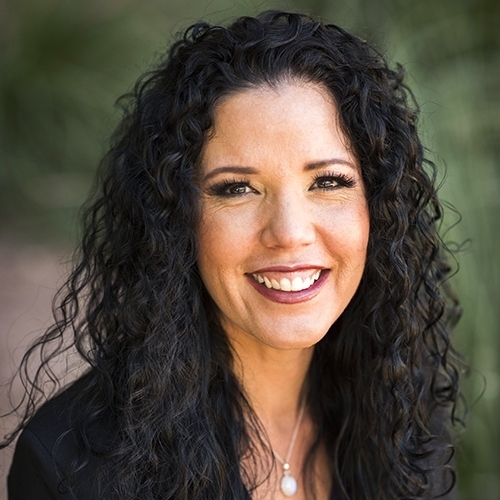

Angela Lober has been an educator and clinician for over 19 years. She has been an Internationally Board Certified Lactation Consultant since 2005 providing evidence-based care within an academic medical center and within her community. Angela is the Director of the Arizona State University Lactation Education Programs offering on-line and academic elective on breastfeeding and lactation. She completed her PhD at Arizona State University's College of Nursing and Healthcare Innovation focused on the breastfeeding complexities of late preterm infants.
Objective 1: Identify feeding challenges of late preterm infants
Objective 2: Discuss the use of a breastfeeding/chest feeding assessment scale to determine feeding effectiveness
Objective 3: Discuss the development of individualized breastfeeding/chest feeding plan for late preterm infants
Late preterm infants struggle with feeding challenges. Due to the oscillating nature of breastfeeding progress in the late preterm population coupled with the innate issues of prematurity, families need support to navigate waters toward breastfeeding success. A model for evidence-based education and breastfeeding assessment will be presented to support infant development and empower mothers to achieve their breastfeeding goals.
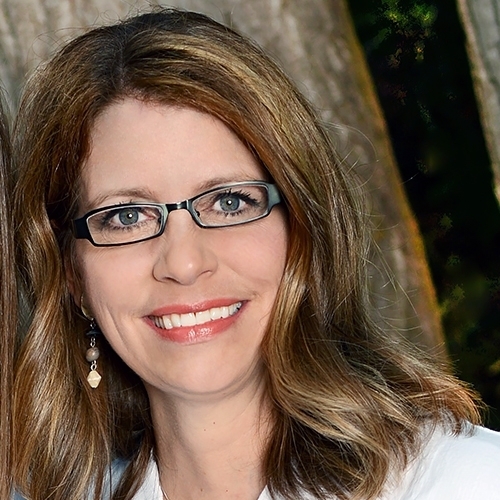

Ellen is the lactation services manager at Intermountain Healthcare Primary Children’s Hospital. She has a Master’s Degree in Public Health Nutrition, is a Registered Dietitian and an International Board Certified Lactation Consultant. Ellen has the unique advantage of using her nutrition knowledge as a lactation consultant. She has a passion for providing human milk for patients with nutritional challenges such as chylothorax and colitis. Her work on fat free human milk is published and has received national review. One of her career goals is to increase knowledge of nurses and healthcare providers regarding human milk immunology and breastfeeding thus improving lactation duration. Ellen has worked with the special needs breastfeeding dyad for the past 20 years at Primary Children’s Hospital to promote breastfeeding and human milk feeding. She designed, set up and manages the Mothers Milk Center at Primary Children’s hospital which opened in 2015. Ellen has presented at local, state and national meetings. She also has experience working at a corporate level with lactation consultants developing breastfeeding policies and protocols as well as lactation education programs for nurses and health care professionals.
Objective 1: List 3 congenital diagnosis that have neurological implications for the breastfed/chestfed infant
Objective 2: Define symptoms of hypotonia and hypertonia in infants
Objective 3: Verbalize breastfeeding/chestfeeding challenges for the hypertonic infant
Neurologic conditions often have a significant impact on the breastfeeding/chestfeeding dyad. The majority of these conditions are congenital, however some may be acquired during the first year of life. Breastfeeding/chestfeeding management of the hypotonic and hypertonic infant will be discussed. Hypotonic neurologic conditions that will be reviewed include floppy infant syndrome, infantile botulism, medullary lesions, Prader-Willi Syndrome and Trisomy 13, Trisomy 18 and Trisomy 21. The hypertonic neurologic conditions cerebral palsy and drug exposed infant will be discussed along with neural tube defects and Congenital Zika Syndrome. Case studies of special needs babies with these neurologic conditions will be presented.
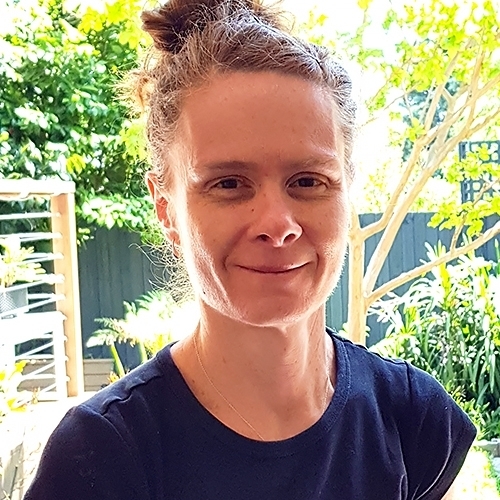

Educator with the Australian Breastfeeding Association (ABA). She has a particular interest in breastfeeding and Down syndrome after her son was born with Down syndrome in 2014. Her journey of breastfeeding her son included a long inpatient hospitalization stay due to his treatment for cancer. She has worked in disability services for over 20 years including community learning disability nursing in the UK, supporting GPs to manage the heath needs of people with complex health conditions and intellectual disability, medical undergraduate education in intellectual disability and currently works in general practice as a Practice Disability Nurse. Heather facilitates Breastfeeding Education Classes to expectant parents, is a Trainer & Assessor in ABA’s training team and provides guidance and contributes to publications on breastfeeding a baby with Down syndrome.
Objective 1: Explain what Down syndrome is
Objective 2: Describe the challenges the mother and her baby with Down syndrome may face with breastfeeding, and how they can be managed
Objective 3: Describe how the benefits of breast milk and breastfeeding can support the health needs of a baby with Down syndrome
As a health professional you may find yourself supporting a mother who is breastfeeding or requires support to breastfeed her baby with Down syndrome. Babies with Down syndrome can often have additional health needs, which may affect how successful they are with breastfeeding. Down syndrome or trisomy 21 is the most common genetic cause of intellectual disability for around 1 in 700 births worldwide. People with Down syndrome are not all the same but may have similar characteristic physical features, health and developmental challenges and some level of intellectual disability. Research has shown many benefits associated with breastfeeding a baby with Down syndrome. It contributes to establishing long term skill development, particularly with speech and feeding skills, as well as aiding brain growth. It also provides an opportunity for mother baby bonding during stressful periods after learning of their baby’s diagnosis. Regardless of these known benefits, some mothers may nevertheless be told their baby will not be able breastfeed. This presentation will explore some of the common challenges mothers may face when breastfeeding a baby with Down syndrome and tips on how to address these for the mother and baby. The material presented will also assist health professionals to support mothers with babies who may have similar health/developmental needs.
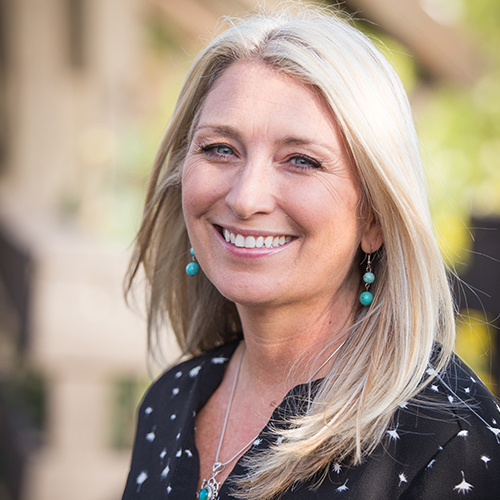

Laurel Wilson, BS, IBCLC, CCCE, CLE, CLD, CPPFE, CPPI owns MotherJourney in Morrison, Colorado. She has her degree in Maternal and Child Health – Lactation Consulting. With twenty-five years of experience working with Parents in the childbearing year and perinatal professionals, Laurel takes a creative approach to working with the pregnant family. She is a co-author of best-selling books, The Greatest Pregnancy Ever: The Keys to the MotherBaby Bond and The Attachment Pregnancy: The Ultimate Guide to Bonding with Your Baby. She currently spends a great deal of her time working with hospitals seeking BabyFriendly Status as a consultant and educator. She strives to provide the latest techniques, research and programs to her clients. Laurel is a board certified as a lactation consultant, childbirth educator, labor doula, lactation educator, Prenatal ParentingTM Instructor, and Pre and Postpartum fitness educator. She served as the CAPPA Executive Director of Lactation Programs for 16 years and trained Childbirth Educators and Lactation Educators for CAPPA certification. She is on the Board of Directors for the United States Breastfeeding Committee, a Senior Advisor for CAPPA, and also on the Advisory Board for InJoy Health. Laurel has been joyfully married to her husband for more than 25 years and has two amazing sons, whose difficult births led her on a path towards helping emerging families create positive experiences. She believes that the journey towards and into parenthood is a life changing rite of passage that should be deeply honored and celebrated.
Topic: Epigenetics and Breastfeeding: The Potential Longterm Impact of Breastmilk - [View Abstract]
Topic: Hold the Phone! Diet Does Matter During Breastfeeding: Implication of Diet on Fatty Acid Composition and Other Nutrients - [View Abstract]
Topic: Inside Out: Unraveling the Dance of NeoHormones, the Estrobolome, and the Microbiome - [View Abstract]
Topic: Postpartum Mood Disorders, Breastfeeding and the Epigenetic Links from Past Into Future - [View Abstract]
Topic: Talk To Me: How Breastmilk Acts as a Communication and Gene Expression Tool Between Mother and Child - [View Abstract]
Topic: The Milk Sharing Conundrum - The Grey Area Between Scope and Need - [View Abstract]
Topic: The Placenta and Breastmilk-Unraveling the Mysterious World of the Intelligent Organs that Protect our Babies - [View Abstract]
Topic: Understanding Zika and Lyme and Breastfeeding - [View Abstract]
Topic: Unraveling the Mysteries of Human Milk: The Fascinating Role of Neohormones, Epigenetics, the Microbiome and More! - [View Abstract]
Objective 1: Identify three main types of lactose intolerance;
Objective 2: List two reasons lactose intolerance as a diagnosis in a healthy, term newborn is unlikely:
Objective 3: Define galactosemia; and,
Objective 4: List four most common foods that can cause food sensitivity/allergy for the breastfeeding newborn;
Lactation professionals often hear from their clients that their breastfed babies have been diagnosed as lactose intolerance. This lack of understanding regarding types of lactose intolerance and potential issues with breastfeeding involving the newborn gut often lead to a cessation of breastfeeding. This session will cover the three main types of lactose intolerance, as well as galactosemia. Maternal gut damage and protein sensitivity and how that can impact the breastfed baby will also be addressed. Attendees will also learn about the most common foods that cause food sensitivity and allergy and what referrals are best made with these issues.


Lyndsey is an experienced paediatric nurse, children’s public health nurse, International Board Certified Lactation Consultant, Holistic Sleep Coach, researcher and responsive parenting advocate. She has worked in hospitals, clinics, the community and within clients’ homes for 20 years, serving within the UK NHS, in private practice and voluntarily.
The co-founder and clinical director of the Holistic Sleep Coaching program, Lyndsey regularly teaches internationally, as well as providing mentorship for newer sleep coaches. She is passionate about responsive feeding, gentle parenting and promoting parental confidence and well-being.
With Professor Amy Brown, she is the co-founder of Thought Rebellion – an education and publishing company seeking to inspire, challenge and equip professionals and writers in the parenting, lactation and perinatal space with an evidence based revolution.
Lyndsey is currently a PhD researcher at Swansea University, exploring the needs and challenges of medically complex breastfed infants and children. In 2019 she set up the Breastfeeding the Brave project to raise awareness of the unique breastfeeding needs of chronically, critically, and terminally ill children in the paediatric setting. The mother of a childhood cancer survivor, she often talks about the impact of chronic serious illness on families, and seeks to support other families living through a serious childhood illness.
Lyndsey is a respected international speaker and teacher, and regularly speaks out against the dominant sleep training culture, as well as advocating for the rights of families to receive high-quality, compassionate and expert support. She is the author of Holistic Sleep Coaching (2018), Let’s talk about your new family’s sleep (2020), Still Awake (2021), Breastfeeding the Brave (2022) and co-author of The Writing Book (2022).
Topic: Breastfeeding Children with Cancer - [View Abstract]
Topic: More Support in a Coffee Shop Than in the Hospital: Experiences of Breastfeeding Children With Medical Complexity - [View Abstract]
Topic: Supporting Families With Sleep While Optimising Attachment and Responsive Feeding - [View Abstract]
Topic: You Can't Sleep With Your Foot On The Gas Pedal: How To Improve Sleep By Tapping Into Calm - [View Abstract]
Objective 1: Describe the prevalence of childhood cancer
Objective 2: List some of the most common treatments
Objective 3: Discuss some of the common challenges faced by parents of children with cancer
Most children, happily, encounter no significant illness during childhood. Of those who do, some will be breastfed. Exclusive breastfeeding for 6 months, as well as continued breastfeeding alongside appropriate introduction of solid foods until the age of two years and beyond is recommended by the World Health Organisation. Breastfeeding is known to confer multiple well-documented protective properties, and the risks of not being breastfed are profound, even in well-developed countries.
Although breastfeeding reduces the overall risk of many serious childhood illnesses and malignancies, it is not a panacea. Many children who are breastfed optimally will still develop a serious health condition. This small group of children, and their families are an important population, with specific needs that are under-represented in policy, literature and professional training.
This presentation will identify specific childhood cancers, their prevalence and common treatments. It will also introduce some of the challenges experienced by parents breastfeeding their child through cancer, and some practical ways to support families facing this ordeal.


Mariana Colmenares Castano was born in Mexico City, and from an early age she was fascinated by animals and nature.She studied medicine at the National University of Mexico (UNAM), and foundher passion as a pediatrician doing her residency at the National Pediatric Institute. When her first child was born she witnessed the lack of knowledge and commitment to breastfeeding within the medical profession, and so she decided to specialize in breastfeeding medicine. She certified as a Lactation Consultant (IBCLC) in 2011.Mariana is a member of the International Lactation Consultant Association, the Academy of Breastfeeding Medicine, and a proud founding member of the National Lactation Consultant Association of Mexico (ACCLAM), where she served on the Board of Directors as Education Coordinator (2014-2019). She is part of board director for the Academy of Breastfeeding Medicine for a 3 year period (2019-2022) and recently named as secretary for the Academy of Breastfeeding Medicine. Mariana is a member of the team for Breastfeeding Country Index BFCI, a project from Yale University and Universidad Iberoamericana. She is consultant for the National Health Institute in Mexico and has collaborated with UNICEF in breastfeeding projects and part of the steering committee for the WHO. She has spoken at national and international conferences, co-published numerous articles and co-authored a chapter for the National Academy of Medicine. At the moment she is a Clinical Fellow in Community Paediatrics in London.
Topic: Breastfeeding The Baby With Congenital Heart Disease - [View Abstract]
Topic: Breastfeeding with Insufficient Glandular Tissue - [View Abstract]
Topic: Clinical Assessment and Management of Jaundice in the Newborn - [View Abstract]
Topic: Oral Colostrum Care as an Immunological Intervention in the NICU - [View Abstract]
Objective 1: Discuss the medical challenges related to congenital heart disease with respect breastfeeding and breastmilk feeding
Objective 2: Use the tools for supporting mothers who have infants diagnosed with congenital heart disease to encouraged pumping/feeding for their infants
Objective 3: List different methods for feeding a baby with cardiac disease: gavage, bottle feeding, or direct breastfeedings
Breastfeeding can sometimes be challenging for some families even when baby and mother are healthy. The immunological and nutritional benefits provided by breast milk must be considered when feeding any baby; it is by far the best start for babies that have any other disease where they can tend to suffer from multiple respiratory infections and other medical complications putting babies’ health, wellbeing and lives at risk. When there is a baby with a congenital cardiac disease we can face a lack of evidence and homogenous practices regarding breastfeeding. Many mothers feel helpless and many surgeons and cardiologists are not convinced that breastfeeding is better and easier for the infant with congenital heart disease. They are uncomfortable with not knowing the volume baby consumes and are not used to observing oxygen saturation and heart rate when the baby is feeding at the breast. Current challenges in treating patients with chronic conditions include the prioritization of breastfeeding, identification of the most effective nutritional interventions, and the prevention or recovery of acquired growth failure.
Children with congenital heart disease who breastfeed have better growth, shorter hospital stays, and higher oxygen saturations than children with congenital heart disease who receive formula. It is necessary to support these families with evidenced based information to promote and support breastfeeding to all mothers and babies. Create programs to meet the needs of these vulnerable babies and train surgical and pediatric staff of the neonatal surgery unit so they can support and facilitate multidisciplinary work.


Mariana Colmenares Castano was born in Mexico City, and from an early age she was fascinated by animals and nature.She studied medicine at the National University of Mexico (UNAM), and foundher passion as a pediatrician doing her residency at the National Pediatric Institute. When her first child was born she witnessed the lack of knowledge and commitment to breastfeeding within the medical profession, and so she decided to specialize in breastfeeding medicine. She certified as a Lactation Consultant (IBCLC) in 2011.Mariana is a member of the International Lactation Consultant Association, the Academy of Breastfeeding Medicine, and a proud founding member of the National Lactation Consultant Association of Mexico (ACCLAM), where she served on the Board of Directors as Education Coordinator (2014-2019). She is part of board director for the Academy of Breastfeeding Medicine for a 3 year period (2019-2022) and recently named as secretary for the Academy of Breastfeeding Medicine. Mariana is a member of the team for Breastfeeding Country Index BFCI, a project from Yale University and Universidad Iberoamericana. She is consultant for the National Health Institute in Mexico and has collaborated with UNICEF in breastfeeding projects and part of the steering committee for the WHO. She has spoken at national and international conferences, co-published numerous articles and co-authored a chapter for the National Academy of Medicine. At the moment she is a Clinical Fellow in Community Paediatrics in London.
Topic: Breastfeeding The Baby With Congenital Heart Disease - [View Abstract]
Topic: Breastfeeding with Insufficient Glandular Tissue - [View Abstract]
Topic: Clinical Assessment and Management of Jaundice in the Newborn - [View Abstract]
Topic: Oral Colostrum Care as an Immunological Intervention in the NICU - [View Abstract]
Objective 1: Describe what the literature says about antenatal breastmilk expression
Objective 2: Discuss the complexity of induction of labor.
Objective 3: Describe useful tools for mothers and health professional for antenatal breastmilk expression.
Antenatal breastmilk expression may be suggested to mothers, including mothers with diabetes and obesity to improve breastfeeding and maternal and infant outcomes postpartum. It can be a tool for use in these special circumstances, collecting colostrum prenatally can permit supplementation of newborns at risk for hypoglycemia at birth, reducing the use of formula. It is important also to know that teaching mothers hand expression techniques prenatally improves breastfeeding rates. Other clinical cases that can benefit from this practice are women with insufficient glandular tissue, polycystic ovaries, and mothers who have breast surgery. Learn more about the current literature on antenatal milk extraction, the complexity of labour induction and whether there is any truth to the belief that it is not possible to stimulate the nipples during pregnancy because it could start labor, and how and when to implement antenatal milk extraction in practice.


Divya Sinha Parikh MD, IBCLC, FAAP is a board certified pediatrician practicing in Columbus, OH. She received her medical training at The University of Pittsburgh School of Medicine and completed her residency in general pediatrics at Rainbow Babies and Children’s Hospital at Case Western Reserve University. She formerly served on the Baby Friendly Hospital Initiative Committee at MetroHealth Hospital Systems in Cleveland, OH and created a breastfeeding medicine clinical rotation during residency. Within her practice, she has extensive experience managing lactation concerns and has taken a special interest in mentoring current and aspiring breastfeeding providers. She has presented her work at local and national meetings.
Topic: When Supply is Greater than Demand: Maternal Hyperlactation Syndrome - [View Abstract]
1. Discuss risk factors for low milk supply.
2. Discuss diagnostic workup for low milk supply.
3. Discuss management strategies for low milk supply and provide updates on current research findings.
Low milk supply is a common reason for breastfeeding mothers to seek care from their obstetric provider. Causes are multifactorial, including chronic disease, endocrine dysregulation, and environmental factors. Learn more about the latest updates and research on the causes of low milk supply and identifiable risk factors during pregnancy that may predict low milk supply. Updates on diagnostic workup and management of low milk supply will be discussed.


Andrea Herron, is one of the first and longest continuous certified pediatric nurse
practitioners in the United States. After more than 40 years working with breastfeeding
mothers and their babies and teaching parenting classes, she is among one of the
most experienced consultant in the field of lactation. Regardless of the issue or concern,
Andrea has guided thousands of mothers to meet their breastfeeding and early parenting
goals through support groups, lactation consultations, and childrearing education. After
receiving a Master's in pediatric nursing from UCLA, Andrea became an early pioneer in
the back-to-breastfeeding movement, and educated health professionals as an instructor
in the UCLA lactation educator course, all over the United States. Her private lactation practice,
Growing with Baby in San Luis Obispo, California, was used as the national model for
private practices by Women Infant and Children (WIC), the federally funded health and
nutrition program. One of her favorite and most popular topics she teaches through her
Growing with Baby parenting groups is, Understanding Your Infant’s Temperament.
This topic and many of the other topics she teaches are included in her newly released
book, Suckle, Sleep, Thrive: Breastfeeding Success Through Understanding Your Baby’s
Cues. Co-written with Lisa Rizzo.
Andrea has been married to Larry Herron, an orthopedic spine surgeon,
for over 35 years. They are the proud parents of a grown son,
two Labradors, a cat, and parrot. The couple reside in Shell Beach,
California.
Topic: The Relationship Between Parent/Infant Synchrony, Breastfeeding Success and Infant Cues - [View Abstract]
Objective 1. Describe the characteristics of the six infant states and their relevance to breastfeeding.
Objective 2. Relate the importance of appropriate parental responses to infant cues and their impact on the development of infant self-regulation.
Objective 3. Describe the correlation between contingent communication between parent and baby and long term self esteem and optimal development.
Objective 4. Define infant regulation.
Objective 5. Describe how to engage today’s parent in the role of observing their baby through, “Baby Watching.”
Objective 6. List the infant cues that indicate hunger, satisfaction, fatigue and overstimulation.
During early breastfeeding it is critical that parents learn how to respond to and meet the individual infant’s needs. Compared to other mammals, the human newborn has a larger and more adaptable brain (head). The infant is particularly immature and dependent on appropriate, responsive care giving, and an environment for optimum development, survival and safety. Successful breastfeeding and parent and infant self-esteem are dependent upon the caregiver’s understanding of infant signals and contingent appropriate responses as the baby matures. This presentation focuses on understanding: (1) the newborn's abilities and senses; (2) how parents can identify and understand the abilities (Baby Watching Techniques); (3) infant states of awareness; and, (4) in-depth illustrations of infant cues and their interpretation.


Rachel Dean serves as a Registered Dietitian and International Board-Certified Lactation Consultant, with a Bachelor of Science in Nutritional Sciences from Penn State University and a Master’s in Public Health from the Department of Maternal and Child Health at the UNC Chapel Hill. She also completed her lactation training through the Carolina Global Breastfeeding Institute.
Her career has included providing maternal and pediatric nutrition counseling through WIC and SNAP programs and working on local and regional levels to provide nutrition and feeding education and support. Currently, she serves as the owner of Harmony Nutrition & Lactation, LLC, where she supports parents of color and helps them feel comfortable with nourishing themselves and their little ones.
Rachel is passionate about decreasing racial health disparities and achieving health equity among all people. She helped create and was the Program Director for the first two cohorts of the Lactation Consultant Training Program at Johnson C Smith University, the first Pathway 2 training program implemented at a historically black college/university in an effort to help diversify the field of lactation. She also serves as the Executive Director and Cofounder of Queen City Cocoa B.E.A.N.S., a non-profit organization that assists new and expectant families of color in improving their health and achieving a more balanced lifestyle through nutrition, lactation education, and support.
Objective 1. Define motivational interviewing and discuss the steps involved in the process of working with parents.
Objective 2. Describe the motivating factors that drive individuals towards behavior change and meeting goals.
Objective 3. Describe how to apply the steps to lactation-specific scenarios to better assist parents in meeting their goals.
The purpose of this presentation is to help lactation consultants improve counseling skills with parents through the use of motivational interviewing. We will define motivational interviewing and discuss brief history. Then we will discuss behavior and what drives individuals to change or adopt certain behaviors. We will discuss the importance of the parent-provider relationship in communicating and supporting parents to discover answers within themselves and realize that they are truly the experts. And finally we will review the steps to MI and learn how to apply them in different breast/chest feeding scenarios.
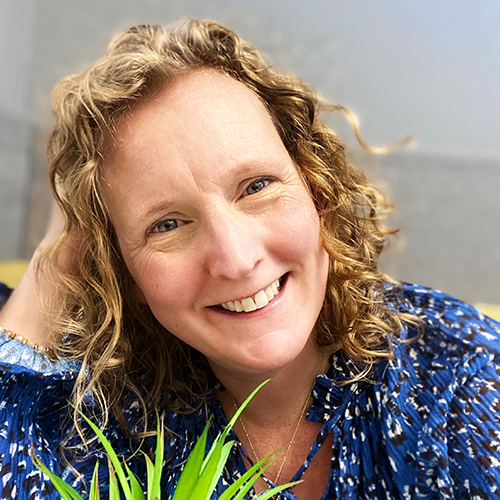

Anna Le Grange is an International Board Certified Lactation Consultant, Registered Pediatric Nurse, Mindfulness teacher and Author. She has worked with new families for over 20 years in a variety of clinical roles. Anna brings her passion for psychology, neuroscience and mindfulness into her lactation support work and facilitates other professionals to incorporate emotional well-being tools into their own lactation practice. Mother to 3 children, Anna breastfed her 3rd child following breast reduction surgery and experienced first-hand, the emotional challenges that so often relate to infant feeding complexities. She used her personal experiences alongside mindfulness and lactation knowledge, to create a toolbox of techniques for breastfeeding families, which she includes in her courses and book, The Mindful Breastfeeding Book. Anna believes whole-heartedly in prioritizing calm and connection within our breastfeeding support practices, both for our clients and ourselves. Anna is currently studying for a MSc in Positive Psychology at Buckingham New University and has spoken at various events including the Gold Lactation, ILactation Conference and Nurturing The Future.
Topic: Being Mindful: Case Studies of Mindfulness Tools in Clinical Lactation Practice - [View Abstract]
Topic: Breast/Chestfeeding After Breast Reduction - [View Abstract]
Topic: Working With Anxious Parents and Fussy Babies - [View Abstract]
Objective 1: Following this session, participants will describe the link between stress, the nervous system and lactation.
Objective 2: Following this session, participants will be able to discuss how brain/body connection is relevant to milk-supply, mother-baby bonding and emotional wellbeing.
Objective 3: Following this session, participants will be able to list 3 mindfulness-based interventions suitable for using with new parents.
In this presentation Anna Le Grange shares with us the links between stress and lactation and how mindfulness and relaxation techniques can help. As well as having psychological benefits for both parent and baby, relaxation and mindfulness tools can positively impact the let-down-reflex and milk supply. The early days and weeks after a baby is born, can be a time of stress and worry for many parents, if low milk supply is also a concern, these feelings may be exacerbated. Anna presents mindfulness-based support for new parents as a holistic, evidence-based and nurturing way to work with families whilst also helping them increase their supply through practical breastfeeding support measures.
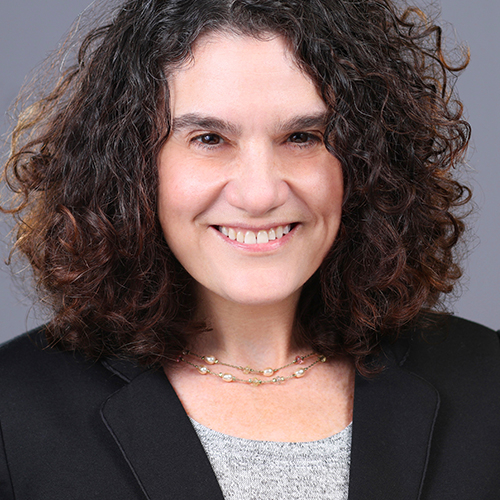

Leslie has been providing lactation support in Central New Jersey for over 18 years - as a La Leche League (LLL) leader since 2002, an IBCLC at Mercer County WIC from 2014 to 2016, and as a private practice IBCLC since 2011.
Leslie grew up in New York and New Jersey. She graduated from Cook College/Rutgers with a BS in Biochemistry, and from Rutgers University/UMDNJ with a PhD in Biochemistry and Molecular Biology. Leslie's difficulties with early breastfeeding, the help she received from LLL, and challenges with returning to work laid the foundation for her understanding of the importance of skilled and compassionate lactation and infant feeding support.
Topic: Untangling the Big Picture of Tongue-Tie Assessment - [View Abstract]
1. Explain the process for assessing infant oral structure and motion and its impact on feeding.
2. List the components of a complete assessment that extend beyond the oral cavity.
3. Describe the ongoing assessments that are needed through the course of care to allow for adjustments in the care plan.
IBCLCs assess chest/breast and bottle feeding skills, and infant’s oral and body structures and motions that contribute to, or inhibit, the process of feeding as well as post-feeding comfort. When infants present with feeding dysfunction, the root of the issue is often tight frenulum (ties), or asymmetric/tense muscles/fascia, or both. IBCLCs help families navigate the differential assessment of feeding dysfunction, and at the same time support the family’s feeding and milk supply choices. This presentation will examine the bigger picture of assessment when ties are suspected. Because a narrow focus on only the oral cavity can negate other contributing factors, initial and follow-up assessments need to include not just what is going on in the infant’s mouth, but also take into account the infant’s body as a whole, family dynamics, feeding goals, and the creation of a manageable plan for the family. IBCLCs aid with oral/body exercises, referrals for oral evaluations and/or bodywork, help with pre/post frenotomy oral skills, and more - helping to adjust the care plan as infant feeding skills and parent goals grow and change. Developing the skill of big picture assessment is crucial in order to determine the best course of clinical care, meet the families needs, and allow for the best possible outcome.


Shondra Mattos is an IBCLC (Internationally Board-certified Lactation Consultant) and owner of a Location-independent lactation practice where she provides breastfeeding and infant feeding support to families countrywide.
Shondra finds the science of lactation fascinating, and as such, she has a passion for sharing her understanding of complex lactation subjects with her colleagues and aspiring lactation students. When she's not with clients, speaking, or teaching, she spends time with her husband and daughter in Fayetteville, NC.
Bryna is a lactation consultant, mentor, educator, and birth doula in the Pacific Northwestern United States. They are active in their community as an advocate for mutual aid, reproductive justice, and reduction in barriers to care. They also own and manage an inclusive private practice. As a member of both Queer and Neurodivergent communities, offering inclusive care on every level is very important to Bryna. Their vision is to offer information and tools to providers to build a community of comprehensive, concordant, and individualized care for all families in the perinatal period.
Objective 1: Describe difficulties to other providers.
Objective 2: Explain in simple terminology to parents what’s going on.
Objective 3: Discuss what strategies will improve muscular movement, tone, and strength
We propose a talk that outlines the anatomy and physiology of normal infant feeding. Our talk will cover the basic functions of infant muscle groups recruited for latching, sucking, swallowing, and drinking human or artificial milk. We believe that if lactation professionals understand normal physiology as it pertains to muscle groups, they will better be able to educate and help the families our profession serves. At the end of this talk, the lactation professional will be able to establish a baseline for normal muscle function when evaluating the breastfed infant. We will use multiple learning modalities to outline and explain the essentials of muscle function in the breastfed infant.


As a Pediatrician and an IBCLC, Shacchee is attracted to ways of promoting health and well-being for families. She transitioned to lactation support 14 years ago after her first daughter was born, realising the felt need for skilled Lactation Support in her community.
She works at a tertiary care hospital in New Delhi, India, and heads a Lactation team, supporting families in their antenatal, intra-natal and postnatal periods. She also trains medical and paramedical staff in skilled lactation support.
She is the current President and Executive Team member of ALPI (Association of Lactation Professionals India). She works as a clinical instructor, helping train future lactation professionals in various aspects of Skills, Ethics, Scope of Practise and Communication.
She co-ordinates between Public and Private healthcare bodies to provide equitable lactation support across her community.
She is an advocate of teamwork in supporting dyads with special lactation challenges (oral restrictions/ NICU babies etc) and has been working to bring experts from different fields together for comprehensive lactation support.
Working with different teams locally and nationally allowed her to achieve the goal of making, "skilled lactation support a reality in India."
Married to Vipul, they have two super girls Navya (14) and Ayana(11).
Topic: Skilled Lactation Support in Suboptimal and Low Resource Settings: Onsite Mentoring as a Game Changer - [View Abstract]
Objective 1: Discuss the need to involve and train the local community / team in a resource limited setting.
Objective 2: List at least 2 ways in which they can support a family in a less than ideal environment.
Objective 3: Describe how lactation support can look different in different settings.
We have protocols and optimal models of care for lactation specific challenges. Does this mean we cannot provide optimum support in resource limited settings or less than ideal settings?
Skilled lactation support can mean different things in different settings. To serve a community, its crucial to understand the particular needs of the community and to be able to cater to them in a culturally acceptable and feasible way without compromising on the quality of lactation care, more so in resource limited settings.
India has a huge population of families in need of lactation support and we also have scarcity of skilled and trained lactation support people. We are such a diverse country that our customs, language, socioeconomic milieu (and thus the challenges) change every few Kilometres.
This presentation talks about the various means with which we were able to improve the availability Skilled Lactation Support in the community, especially utilising our most plentiful resource, our community, with online and onsite mentoring....i.e. skilled lactation support to the community by their own community.


Alyssa has been helping parents and babies with breastfeeding since 2002, first as a La Leche League Leader and since 2009 as an International Board Certified Lactation Consultant.
Alyssa works in private practice serving clients worldwide, primarily through telehealth. She is the author of Breastfeeding Without Birthing: A Breastfeeding Guide for Mothers Through Adoption, Surrogacy, and Other Special Circumstances and a professional supplement to the book, The Breastfeeding Without Birthing Professional Pack online training.
Alyssa has authored articles for The Journal of Human Lactation: The Three Step Framework for Inducing Lactation and Successful Co-Lactation by a Queer Couple: A Case Study. She has also authored articles for La Leche League’s Leader Today and Breastfeeding Today magazines, and Adoptive Families magazine. She is an international speaker on the topics of inducing lactation, relactation, and other related topics. Alyssa is the proud mother of three breastfed children, two by birth and one by adoption. She lives in St. Louis, Missouri, USA.
Topic: Demystifying Inducing Lactation: How Lactation Happens Without Pregnancy and Birth - [View Abstract]
Topic: ReLATCHtation: Transitioning the Exclusively Bottle-fed Baby to Nursing - [View Abstract]
Topic: Supplementation: A Goldilocks Dilemma - [View Abstract]
Topic: The Proficient Pumper - [View Abstract]
Objective 1: The learner will be able to describe the circumstances when a parent might be transitioning from bottle to breast/chest
Objective 2: The learner will be able to identify challenges transitioning from bottle to breast/chest.
Objective 3: The learner will be able to discussing successful nursing.
Objective 4: The learner will be able to use the Building Blocks to Nursing.
Newborn babies are hardwired for breastfeeding: their newborn instincts direct them to latching at the breast/chest. But what about older babies who are currently exclusively bottle-feeding – can they learn to nurse too? A birthing parent may wish to initiate or resume breastfeeding after choosing not to breastfeed or discontinuing breastfeeding. An adoptive or foster parent may be placed with an older baby or toddler whom they wish to nurse. With patience, persistence, support, and some tools and tricks, it can be possible. This presentation discusses how to know if baby is ready to breastfeed, setting the stage for success, and the process of gentle transitioning from bottle to breast/chest.


Dr. Diane DiTomasso achieved a Diploma in Nursing from Newport Hospital School of Nursing; a Bachelor of Science in Nursing, a Master of Science in Nursing Education, and a PhD from the University of Rhode Island. She is an Associate Professor at the University of Rhode Island College of Nursing.
Her research focus is human lactation and infant weight. She has multiple publications in journals such as Journal of Gynecologic & Neonatal Nursing (JOGNN), Journal of Human Lactation, Journal of Perinatal and Neonatal Nursing, and Nursing for Women’s Health and has presented her work nationally and internationally.
Dr. DiTomasso has received various honors and awards with the most recent being the 2020 Suzanne Feetham Nurse Scientist Family Research Award by the Eastern Nursing Research Society (ENRS) and the 2020 Best of JOGNN Award as first author of the article, “Systematic Review of Expected Weight Changes After Birth for Full-Term, Breastfed Newborn. She has served as Principal Investigator for a variety of neonatal research studies. Dr. DiTomasso is a member of AWHONN, the International Lactation Consultant Association, the Eastern Nursing Research Society, and Sigma Theta Tau International. She currently serves as a Member on the AWHONN Research Advisory Panel.
Objective 1: List 3 problems with data collection in research studies focused on newborn weight.
Objective 2: Discuss expected patterns of weight loss and weight gain in the early weeks of life for full term breastfed neonates.
Objective 3: Explain how increased neonatal weight loss affects exclusive breastfeeding rates.
This presentation will summarize the findings of recent studies on neonatal weight changes that occur in the early weeks of life among full-term, breastfed newborns.
Data Sources: Using the keywords breastfeeding, newborn, infant, weight, weight loss, and growth, we searched PubMed, Cumulative Index of Nursing and Allied Health Literature, Cochrane Library, and MEDLINE for primary studies and secondary analyses. We also reviewed the reference lists of retrieved articles. Study Selection: Quantitative studies published in the English language from 2015 through 2019 that focused on newborn weight changes. From a total of 827 records initially screened, we included 11 studies in this analysis.
Data Extraction: Two authors independently reviewed the selected articles with the use of the Johns Hopkins Nursing Evidence-Based Practice Synthesis and Recommendations Tool. To determine evidence levels and quality ratings, we evaluated the consistency and generalizability of study results, sample sizes, study designs, adequacy of controls, and definitive nature of the conclusions. This presentation will discuss the finding of this study related to expected weight changes after birth for full-term, breastfed newborns.


Johanna Sargeant is an International Board Certified Lactation Consultant, teacher and writer based in Zurich, Switzerland. She is passionate about utilising her background in education, biological science, psychology and language to empower parents with empathetic support and evidence-based information through her private practice, Milk and Motherhood.
Originally from Australia, Johanna provides much-needed English-speaking support to many thousands of parents throughout Switzerland and across Europe, and has recently been writing new education modules for the European Society of Paediatric Research and the European Society of Neonatology. She has taught at the University of Zurich, has spoken as a panelist for the WHO's Baby Friendly Hospital Initiative congress in Geneva, has been an expert speaker and facilitator for Google, and has presented at a wide variety of international conferences. The complexities of her personal feeding experiences fuels her passion for providing knowledgeable, guilt-free infant feeding support globally.
Topic: Mastering Lactation Conversations: Creating Successful and Achievable Care Plans - [View Abstract]
Topic: Seeing the Bigger Picture: Finding Clues in Our Breastfeeding Clients' Surroundings - [View Abstract]
Topic: When Evidence and Empathy Aren't Enough: Changing Your Lactation Practice to Boost Client Success - [View Abstract]
Objective 1: List the benefits and barriers of at-breast supplementation.
Objective 2: Describe when it is appropriate and inappropriate to be suggesting at-breast supplementation.
Objective 3: Discuss how to use the variety of at-breast supplementation tools.
Using an at-breast supplementer is often thought to be annoying, complicated and unsustainable -- but it doesn't have to be! While many lactation consultants are aware of the benefits of supplementing directly at the breast, many admit to feeling overwhelmed, and few actually use it with their clients. With this presentation, you will learn the specific benefits and barriers to this form of supplementation, view demonstrations of a variety of these devices, and learn some tips and tricks to make this at-breast supplementation feasible and sustainable for families. We all need to feel comfortable recommending and teaching the use of these tools, enabling us to foster the best overall health for the families we support.


Divya Sinha Parikh MD, IBCLC, FAAP is a board certified pediatrician practicing in Columbus, OH. She received her medical training at The University of Pittsburgh School of Medicine and completed her residency in general pediatrics at Rainbow Babies and Children’s Hospital at Case Western Reserve University. During residency, she created a breastfeeding medicine clinical rotation.
Within her practice, she has extensive experience managing lactation concerns and has taken a special interest in mentoring current and aspiring breastfeeding providers. She has presented her work at local and national meetings.
Rachel Walker received her master’s degree in exercise science and wellness from Old Dominion University and a PhD in nutritional sciences from Penn State University. Her PhD work focused on lipid metabolism and insulin resistance. She has over 3 years of experience teaching both nutrition and exercise science courses.
In 2020, she was selected for a research fellowship from the United States Department of Agriculture for her study, ‘The Role of Metabolic Health and Lipid Metabolism in Human Lactation and Milk Composition’. Her current research is focused on the effects of insulin resistance during pregnancy and lactation, especially with the goal of developing therapies to improve lactation.
She has presented her research at numerous national meetings. Rachel’s proudest achievement is becoming Mommy to her 3 children, Clark, Lee, and Nora.
Objective 1: Discuss what factors affect low or high milk fat.
Objective 2: Discuss what factors affect fatty acid concentrations.
Objective 3: Apply knowledge of milk fat to clinical practice concerns in infant nutrition and donor milk use.
The fat content of breastmilk is remarkably important for infant health outcomes. Therefore, it is important to understand what factors affect breastmilk fat profile. Total fat is the main determinant of energy in breastmilk, and varies with time of day, length of lactation, and duration of the feed. Maternal factors also influence milk fat, including BMI, parity, and diabetes. Long-chain polyunsaturated fatty acids, like docosahexaenoic acid and arachidonic acid, are vital to the structure and development of the infant brain, and attaining the correct balance is important for optimal development. Breastmilk fatty acid concentration, especially the polyunsaturated fatty acids docosahexaenoic acid and arachidonic acid, are vital to infant brain development. Fatty acid concentrations primarily depend on diet and vary significantly between populations, but other maternal factors can also affect the fatty acid content of breastmilk.
Breastmilk fat content has significant implications for clinical practice. First, it is necessary to optimize clinical methods for human milk fat measurement, such as bedside human milk analyzers. Second, understanding milk fat variation will help optimize breastmilk fortification for infants in neonatal intensive care units. Finally, variability in donor milk also makes estimation of fat and energy in milk banks difficult, with important clinical implications for preterm infants who cannot receive mother’s own milk.
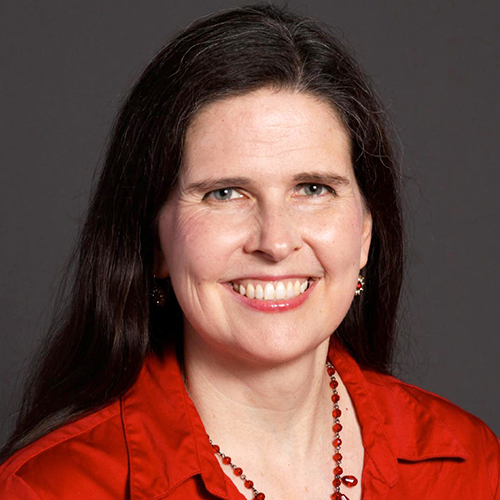

Marie Zahorick, MS, APRN, PMHNP-BC, FNP-C, IBCLC became a La Leche League Leader in 1999 and an IBCLC in 2005. After several years of working as a hospital-based bilingual Spanish-speaking IBCLC, she attended nursing school and eventually became a board-certified Family Nurse Practitioner. In the meantime, she continued working as a hospital-based lactation consultant doing inpatient, outpatient, and NICU lactation. She did not get much sleep.
After graduate school, Marie went to work in psychiatry and also did a post-masters certificate to became board-certified in psychiatry and mental health. She was fellowship-trained to manage patients in the acute inpatient setting, partial hospitalization, outpatient office, and OB patients in the general hospital setting.
She specializes in women's psychiatry, especially medical management of women who are pregnant or lactating. Her expertise also includes general psychopharmacology. She is experienced at diagnosing and treating mental conditions such as bipolar disorder, perinatal/postpartum mood and anxiety disorders, postpartum psychosis, obsessive-compulsive disorder, premenstrual and perimenopausal mood disorders, and personality disorders.
She lives in the Chicago area with her husband and three adult children in their 20s. Her children all breastfed for at least two years but now just make faces when confronted with that embarrassing fact.
Topic: Medications and Mothers' Minds: Psychopharmacology for Lactating Mothers - [View Abstract]
Objective 1: List three categories of medications used in psychiatry during the prenatal period and discuss their mechanisms of action.
Objective 2: Report the clinical applications, side effects and potential harm of drugs used in perinatal psychiatry
Objective 3: Access reputable resources in psychopharmacology to help the patient and prescriber assess the risks and benefits of medications and risks and benefits of non-treatment
If you have worked with mothers for more than a few weeks, you have encountered a mother with mental illness. You may not have recognized the symptoms while talking with your patient. Or, you may wonder if a certain psychiatric medication is “safe” during lactation.
Perinatal mood and anxiety disorders (PMAD) include a spectrum of common mental health disorders: depression, panic disorder, obsessive-compulsive disorder, posttraumatic stress disorder, bipolar disorder, and postpartum psychosis.
These disorders often ruin enjoyment of the postpartum experience and bonding with the baby. Perinatal bipolar disorder and postpartum psychosis are particularly dangerous due to severe depression and reckless or bizarre behavior that can endanger mother and baby.
Medicating the lactating mother is a careful balancing act between the health and safety of the mother and the health and safety of the baby. But failing to medicate a mother with PMAD can lead to misery, dysfunction, poor infant outcomes and in the worst situations, injury and death.
This presentation will give an overview of the different classes of antidepressants, antianxiety medications, antipsychotics, and mood stabilizers commonly used in breastfeeding mothers. Electroconvulsive therapy and transcranial magnetic stimulation will also be discussed as non-pharmacologic treatments.


Wendy is a breast biologist at the University of Adelaide, Australia. Her research explores the biology of how the breast develops and functions to better understand how disease states occur, including lactation mastitis and breast cancer.
After postdoctoral research as an NHMRC CJ Martin Fellow at Albert Einstein College of Medicine in New York, USA, Wendy returned to Adelaide in 2005 and established the Breast Biology and Cancer Unit at the University of Adelaide. In 2011 she was appointed a National Breast Cancer Foundation Fellow and also The Hospital Research Foundation Associate Professor of Breast Cancer Research, which is her current appointment.
In 2016 Wendy won the Award for Excellence in Reproductive Biology Research from the Society for Reproductive Biology. Wendy’s research challenges old paradigms and explores new concepts in how the breast develops and functions to improve breast health across the life course.
Objective 1: List the developmental changes that occur in the mammary during puberty and pregnancy.
Objective 2: Discuss the biological mechanisms that lead to milk synthesis and secretion.
Objective 3: Discuss the biological differences in the mammary gland between human and other mammalian species.
The mammary gland is a unique tissue, common to all mammals, that undergoes the majority of development postnatally, particularly during puberty and pregnancy. During pregnancy, the mammary gland acquires the ability to make and secrete copious amounts of milk to provide essential nutrients and immunological protection to the newborn. The biological mechanisms that lead to milk synthesis and secretion are finely orchestrated as the composition, abundance and timing must meet the unique and specific needs of each mother-baby pair during this critical phase of infant development. This lecture will encompass the developmental mechanisms that enable the mammary gland to undergo lactation, the composition and secretion of breast milk, and a comparative analysis of the mammary gland between human and other mammalian species to better appreciate the remarkable functions of this unique tissue.
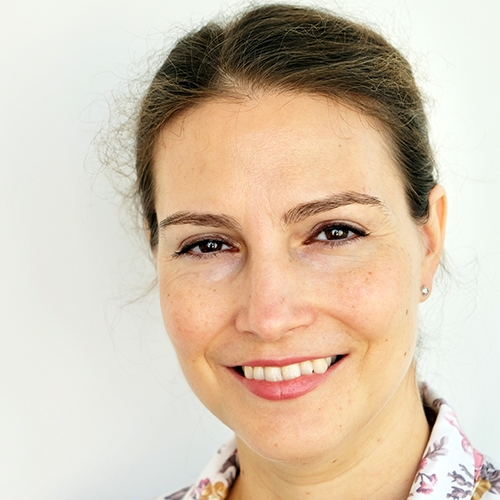

Dr. Smaranda Nay is a Family Doctor, an IBCLC, a Personal Development Counselor and a mother. She has been studying Transactional Analysis psychotherapy since 2007 and is now in her second year of training to become a Somatic Experience therapist. She uses her knowledge to teach parents how to connect with their children and how to attune to their babies’ needs, both through individual counselling sessions and in classes. She is part of the Romanian Lactation Consultants Association and holds lactation education courses for future IBCLCs. She gives lactation counselling consults and holds breastfeeding and childcare courses.
She also holds personal development workshops for teenagers and adults, collaborating with non-formal education organizations and schools. She is particularly curious about the development of an attuned relationship between people and building intimacy and trust. Working with babies, she observes the parent-child connection and explores its potential in healing and growth, and how it impacts the future development of the individual. Working with teenagers and adults, she facilitates ways in which childhood disruptions can be healed in the present.
Objective 1: Describe the importance of communicating with babies.
Objective 2: Discuss how to make the connection with a baby.
Objective 3: Describe ways that lactation and healthcare profesisonals can teach parents to connect with their babies
This is a presentation on how explaining things to babies of all ages, including newborns, can help solve difficult moments during lactation in the parent-baby relationship and lead to healthy parenting. Communication blocks happen frequently due to changes, events, and anxiety, and sometimes they can interfere with breastfeeding/chestfeeding. At least some of these blocks can be solved by communicating with the baby in an open, compassionate, and respectful way.
Lactation and healthcare professionals will learn how to approach such situations, what questions to ask and what suggestions to make to parents so they and their babies can overcome the situation. Lactation and healthcare professionals will also learn about different cases that I have encountered, how the method was applied and what were the results.
I deeply believe that the way we talk to babies, communicate with them and how we teach parents to do that is an essential part of our work. On the long term, it can make an important difference to how those babies are treated, respected, parented, educated, and raised and what kind of adults they will become.
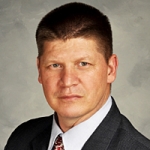

Tom Johnston is unique as a midwife and lactation consultant and the father of eight breastfed children. Recently retired after 27 years in the US Army, he is now an Assistant Professor of Nursing at Methodist University where he teaches, among other things, Maternal-Child Nursing and Nutrition. You may have heard him at a number of conferences at the national level, to include the Association of Woman’s Health and Neonatal Nurses (AWHONN), the International Lactation Consultant’s Association (ILCA), or perhaps at dozens of other conferences across the country. In his written work he routinely addresses fatherhood and the role of the father in the breastfeeding relationship and has authored a chapter on the role of the father in breastfeeding for “Breastfeeding in Combat Boots: A survival guide to breastfeeding in the military”.
Topic: Human Milk Synthesis: Just When You Thought You Knew - [View Abstract]
Topic: New Insights Into the Maternal Child Microbiome - [View Abstract]
Topic: Promoting Provider Self-Efficacy in Breastfeeding Support - [View Abstract]
Topic: Still Swimming Upstream: Breastfeeding in a Formula Feeding World - [View Abstract]
Topic: The Making of Human Milk: A Clinical Update - [View Abstract]
Topic: The Maternal-Child Microbiome or: The “Oro-boobular axis” - [View Abstract]
Topic: The Maternal-Child Microbiome or: The “Oro-boobular axis” - [View Abstract]
Topic: The Perinatal Microbiome - [View Abstract]
Topic: Using Evidence to Develop Clinical Lactation Skills - [View Abstract]
Objective 1: List basic assessment skills in lactation.
Objective 2: Discuss the evidence in support of common breastfeeding skills.
Objective 3: Identify counseling skills required for the breastfeeding family
The field of Human Lactation is a new profession. Much of what we use comes from apprenticeship programs and hard learned lessons from a mother’s own personal experience. The lactation profession needs to investigate several of their practices and policies to discover what is evidence based and what is anecdotal evidence. This presentation explores the practices commonly employed in breastfeeding (growth monitoring, infant positioning, the use of assisted feeding devices, and counseling skills) to determine which are evidence based and which will require further study if they are to be used in clinical practice.


Dr. Nastassia Harris is a licensed registered nurse with over 15 years’ experience in perinatal nursing and became an International Board Certified Lactation Consultant in 2009.
Nastassia serves as an assistant professor in the school of nursing at Montclair State University. Over her career Nastassia developed a passion for eliminating disparities in black infant and maternal health. In 2018, she went on to found a nonprofit, the Perinatal Health Equity Foundation where she serves as the executive director. Through the nonprofit, Nastassia established Sistahs Who Breastfeed, a breastfeeding support group for black women which operates in several NJ cities.
She is active in several committees and organizations including the Association of Women's Health Obstetrics and Neonatal Nursing and the Black Mamas Matter Alliance. Nastassia's research and clinical interests include implicit bias/racism in healthcare, breastfeeding in the black community, obstetrical violence, high risk OB, and reproductive justice.
Topic: When It's Time to Let Go... Stories of Weaning - [View Abstract]
Objective 1: List strategies that are both effective and ineffective in the weaning process.
Objective 2: Discuss the challenges faced by families in the weaning process.
Objective 3: Explain reasons why families may decide to wean
Weaning is an inevitable component of breast/chestfeeding. Many families have expressed feeling unprepared for the experience and the challenges they face in that journey. This presentation will explore the current research and lived experiences of weaning among different families and cultures. We will discuss strategies that were both effective and ineffective in the weaning process, time period in which families began the weaning process as well as tips and tricks from the parent perspective that lead to successfully weaning their child. Weaning will be discussed in the context of the impact on both the parent and the child.


Michal A. Young, M.D., FAAP, FABM is currently an Associate Professor in the Department of Pediatrics and Child Health at Howard University College of Medicine. She also serves as the Medical Director of the B.L.E.S.S. (Breastfeeding Lactation Education Support Services) Initiative as well as Director of the NICU and Newborn Services, at Howard University Hospital. She is a graduate of Howard University College of Medicine, Class of 1979. Dr. Young completed a rotating internship in Medicine and Pediatrics at Grady Memorial and Emory Hospitals in Atlanta, Georgia, followed by a Pediatric residency in the Howard University Hospital/D.C. General Hospital Combined Program, and a fellowship in Neonatal-Perinatal Medicine at Georgetown University Hospital.
Dr. Young has several publications and presentations over a range of topics governing infant care. Her research interests are in developmental outcomes of the ELBW, HIV perinatal transmission, the Diabetic Dyad and in breastfeeding education for professionals and parents.
She is a member of Alpha Omega Alpha, a fellow of the American Academy of Pediatrics (sections on Perinatal Medicine and Breastfeeding), a Fellow and member of the Board of Directors of the Academy of Breastfeeding Medicine (Chairman of its Protocol Committee), member of the National Medical Association (a Past Chair of its Pediatric Section), Member of the Board of Directors for the D.C. Breastfeeding Coalition, Member of the Board of Directors for ROSE: Reaching Our Sisters Everywhere, Inc., one of the Chapter Breastfeeding Coordinators for the D.C. Chapter of the American Academy of Pediatrics and Board Member of the Prolacta Bioscience Foundation.
Objective 1: Explain general immunological benefits of breastfeeding to the health of the infant.
Objective 2: List 4 immunologic components of human milk and their roles.
Objective 3: Discuss the contribution by human milk to the infant's gut microbiome.
Human milk provides multiple layers of immune protection to the newborn by providing bioactive components that protect the infant from pathogenic infection, facilitate immune development and establish a healthy gut microbiome. This presentation will review the cellular and humoral components of human milk that help provide this protection. Additionally, the nutritional components of human milk that also contribute to its immune impact will be briefly explored. The long-term protective effect of breast milk on adult illnesses and disease and its presumed role will be discussed. Lastly the impact milk storage, milk banking practices and use of donor milk as mechanisms to provide immune support to the newborn will be considered. An interactive power point presentation will be used to deliver this important topic.


Robin Kaplan has been an IBCLC since 2009, the same year that she opened up the San Diego Breastfeeding Center. She founded the San Diego Breastfeeding Center Foundation in 2016, a 501(c)3 organization whose mission is to reduce breastfeeding disparities among families of color and low-income families, as well as provide scholarships for women of color to become IBCLCs.
Robin was the founding host of the Boob Group podcast and published her first book, Latch: a Handbook for Breastfeeding with Confidence at Every Stage in 2018. Robin’s center has been a clinical training site for the UCSD Lactation Consultant program since 2015.
In 2019/2020, Robin helped write the curriculum for the University of California San Diego Lactation Educator Counselor program and was the Program Manager for the UCSD Curriculum Development Team for the Pathway 1&2 Lactation Consultant program. Robin has a BA from Washington University in St Louis and Masters in Education from University of California Los Angeles. Robin is currently attending the Functional Nutrition Alliance to become a Functional Nutrition Counselor.
Objective 1: Design a pre-consult checklist for virtual consultations.
Objective 2: Assess for and identify tethered oral tissue during a virtual consultation.
Objective 3: List 3 uses for recordings/videos prior/during/after digital consultations
The need to provide virtual support for breast/chestfeeding families may have been ignited by the pandemic, but telehealth is here to stay. The convenience and flexibility of meeting with families virtually removes barriers, such as location, childcare, and transportation. It also comes with its own set of challenges, such as difficulties reading body language, making connections with our clients, and assessing oral anatomy/milk transfer. Yet, with some intentional preparation, crafty detective skills, open-ended questions, and protocols for complicated situations, you may find that virtual consultations can truly meet the needs of your clients/patients.
This presentation will help attendees think through those important preparations to optimize virtual support.
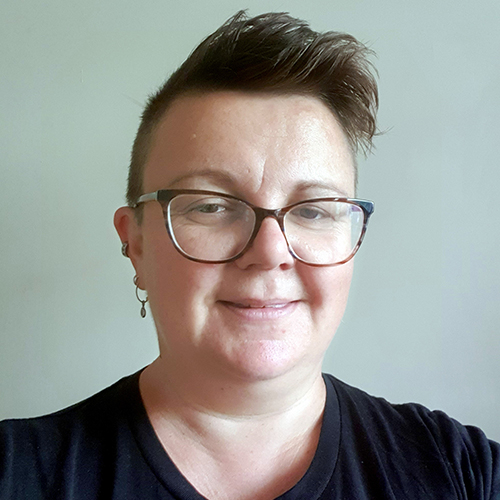

Kathryn Stagg is mum to 4 boys, twins and 2 subsequent singletons. She trained as a breastfeeding peer supporter and volunteered in the groups for years in and around Harrow, NW London, UK.
Kathryn caught the breastfeeding support bug and decided to further her knowledge training as a Breastfeeding Counsellor with the Association of Breastfeeding Mothers and then qualifying as an IBCLC 5 years ago.
Kathryn started Breastfeeding Twins and Triplets Facebook group almost 8 years ago and it now has over 9000 members. It has recently been made into a UK charity. Kathryn is passionate about delivering high quality breastfeeding support to as many twin and triplet families as possible, creating resources and educating health care professionals and breastfeeding supporters. She runs a small private practice and continues to teach music part time, her original career path. Kathryn is the author of Breastfeeding Twins and Triplets; a guide for professionals and parents.
/p>
Topic: Don't Let Us Fool You: Breastfeeding in Late Preterm and Early Term Babies - [View Abstract]
Objective 1: List key ways to help families prepare for premature birth, including establishing breastfeeding multiples.
Objective 2: Describe components of unique care specific to the Late Preterm and Early Term birth in establishing breastfeeding multiples.
Objective 3: Discuss how lactation support professionals to support multiple birth families during the different stages of their breastfeeding journey
This session will help you understand the challenges of a multiple pregnancy and birth. Discover preparations that can help ease stress and increase success in lactation. Learn how to support families experiencing premature birth. You will understand the best way to help parents establish breastfeeding their multiples, even with late preterm/early term birth. This session will help attendees gain and understanding of how to navigate the challenges of breastfeeding multiples and how to support families effectively during the different stages of their breastfeeding journeys.
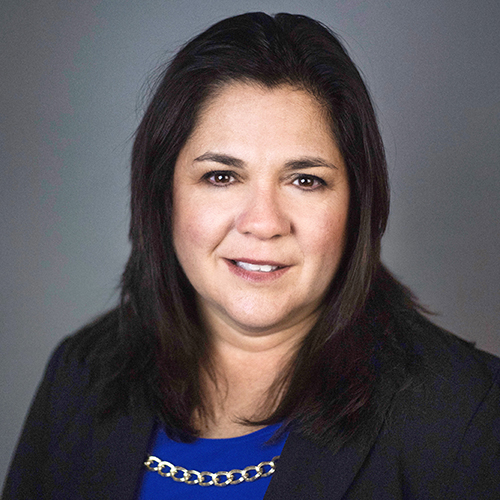

Annette Leary is a registered nurse with over 33 years of experience working in Maternal Child Health (pediatrics, postpartum, home health care and level 2 NICU). She became an IBCLC in 1995. She owns a private practice providing office, in home, and virtual visits at Orlando Lactation and Wellness. In 2022 she formed a collaborative company Baby B.L.I.S.S. : Central Florida Feeding Collaborative where she and her business partners help families prenatally, antepartum and post partum navigate the growth, development and feeding journey of their children. She began her craniosacral therapy training through the Upledger Institute in 2015, taking advanced maternal and pediatric specialty classes. Annette has found great improvement incorporating craniosacral therapy techniques with lactation consulting. Helping Families Latch onto Parenting has always been her mantra.
Topic: Where to Start: Creating a Lactation Care Plan for Complex Breastfeeding Cases - [View Abstract]
Objective 1: List 3 significant factors that impart the need for priority evaluation/assessment.
Objective 2: Use critical thinking skills to triage the Che’s/breastfeeding family’s needs.
Objective 3: List additional key health care providers to collaborate with and assist in managing the case.
Lactation support may be time-limited when caring for multiple families with varying degrees of complexity and needs. Prioritizing between parents and within the individual cases, employing critical thinking skills, and identifying the chest/breastfeeding family’s needs is essential to efficient workflow. Competing priorities can be stressful and draining. Mindfulness empowers those providing care the clarity to prioritize needs and increase satisfaction for both family and lactation support team.
The presentation will consist of actual lactation scenarios varying in complexity and diverse work environments. Participants will interact via the chat box to triage cases, rank interventions and create a collaborative discipline list. We will end with a brief mindful activity.


Liz Brooks is a private practice International Board Certified Lactation Consultant (IBCLC) and licensed lawyer, with expertise in criminal, administrative, non-profit, ethics, and lactation-related law. Liz offers in-home lactation consultations, and bedside care and teaching in two Baby-Friendly-designated hospitals.
She has been a leader in organizations for IBCLCs, breastfeeding promotion, and non-profit human milk banking. She authored the only textbook on legal and ethical issues for the IBCLC, and writes on health care ethics, equity, and conflict-of-interest in several books, blogs, and peer-reviewed journals.
She is a popular international conference speaker, offering practical tips with wit and wisdom for anyone who works with lactating and human milk-using families. Liz self-identifies as a cisgender hetero white woman with unearned privilege, and uses she/her/hers pronouns.
Topic: Using a Cool Head When You’re on the Hot Seat: Ethical and Legal Topics That Make Us Sweat, and How to Avoid Getting Burned - [View Abstract]
Topic: What’s Too “Friendly” for an IBCLC on Social Media? - [View Abstract]
Topic: Whiners and Deniers: Ethics and Diplomacy in Difficult Cases - [View Abstract]
Objective 1: Define the difference between an ethics obligation, and a legal obligation, in clinical practice
Objective 2: Explain how gifts and samples from commercial entities, to health care providers, can change professional clinical behavior
Objective 3: Describe why de-identification of a patient/client, before discussing their case with colleagues, does not meet ethical standards for privacy and confidentiality.
We all understand, generally, that lactation support providers – from licensed primary healthcare providers (HCP) to volunteer peer counselors – owe a “duty of care” to the parents they work with, defined by laws and ethics codes. But many are concerned that they do not know what is really expected of them, in the moment of clinical care, when decisions about how to do things “the right way” must be made. This session will cover the basic of ethics and legal duty as a lactation support provider. Examples from the International Board Certified Lactation Consultant (IBCLC) literature will be used. A few topics that are the most common "hot spots" for practitioners (the ones that make us sweat) will be explored with a few slides, and a lot of free-flow Q&A with session attendees, as we ponder realistic tactics to protect ourselves as practitioners with cool heads and clinical excellence.
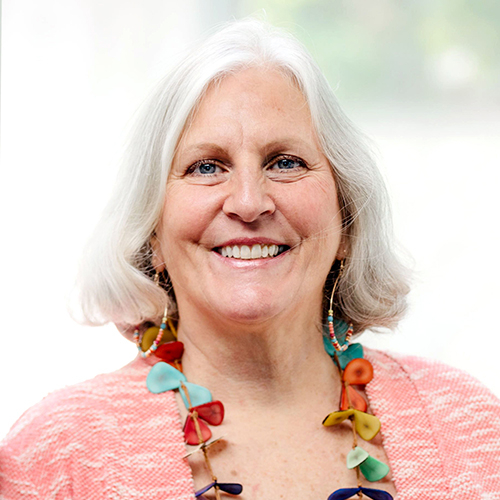

Dr. Hazelbaker has been a therapist in private practice for over 30 years. She specializes in cross-disciplinary treatment and to that end has taken training in several modalities to best assist her clients. She is a certified Craniosacral Therapist, a Lymph Drainage Therapy practitioner, a Tummy Time™ Trainer, a Haller Method practitioner, A Pre and Perinatal Psychology Educator, a Lactation Therapist Diplomate, an International Board Certified Lactation Consultant and a fellow of the International Lactation Consultant Association.
She earned her Master’s Degree from Pacific Oaks College (Human Development specializing in Human Lactation) and her doctorate from The Union Institute and University (Psychology, specializing in Energetic and Transformational healing.)
People recognize her as an expert on infant sucking issues caused by various structural problems like torticollis, plagiocephaly, brachycephaly and tissue shock-trauma. She invented the Hazelbaker™ FingerFeeder and the Infant Breastfeeding CranioSacral Protocol™ to assist in the resolution of this type of infant sucking dysfunction.
Topic: Cranial Nerves: A Critical Component of the Process of Breastfeeding - [View Abstract]
Topic: Creating Flow: Using Lymphatic Drainage Therapy for Breastfeeding Issues - [View Abstract]
Topic: Finger Feeding: What Do We Know? What Should We Know? - [View Abstract]
Topic: Gamechangers: New studies that will change the way we think about tongue-tie - [View Abstract]
Topic: Infant Trauma: Impact on Breastfeeding - [View Abstract]
Topic: The Faux Tie: When is a "Tongue-tie" NOT a Tongue-tie? - [View Abstract]
Topic: The Impact of Bodywork on Infant Breastfeeding - [View Abstract]
Topic: What Does Torticollis Have to do with Breastfeeding? - [View Abstract]
Objective 1. Define subluxation and myofascial trigger points.
Objective 2. Describe signs and symptoms of both in the breastfeeding parent.
Objective 3. List treatment approaches for both conditions.
Deep breast pain and milk stasis are often blamed on back pressure on milk ducts, incomplete emptying and fungal infection. Although these issues can be attributed to backpressure in the case of milk stasis, or "not likely to be related to" in the case of fungal infection inside the breast, the forgotten role that structural integrity plays in breast health can explain those problems that develop and persist despite proper milk removal and general health care of the breast. This presentation covers the anatomy and physiology of rib and vertebral subluxation and myofascial trigger points in generating deep breast pain and milk stasis. Several case reports illustrate the concept; proper care for resolution of these issues is covered.
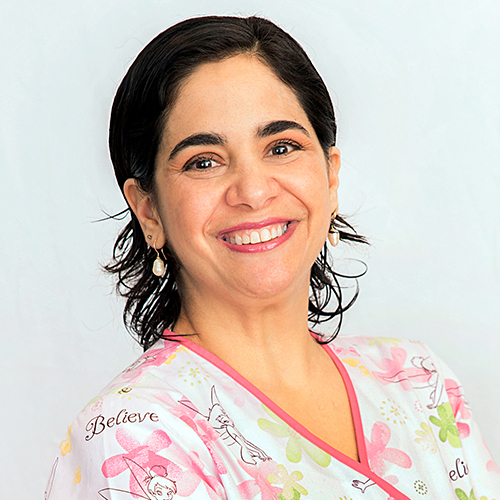

Dr. Camila Palma obtained her Doctor of Dental Surgery (DDS) from Universidad Tecnológica de México (UNITEC), Mexico City. She also holds a Master of Science in Dentistry in Pediatric Dentistry (MSc) from the University of Barcelona, Spain and was certified as an International Board Certified Lactation Consultant (IBCLC) in 2019. Dr. Palma is Associate Professor in the Pediatric Dentistry Postgraduate Department, Peruvian University Cayetano Heredia, and Vice-president of the Peruvian Society of Pediatric Dentistry (2021-2023). She also has her own Pediatric Dentistry dental practice in Lima, Peru (Chis Dental). Dr. Palma is the author of several scientific articles, especially in caries prevention and infant oral healthcare. She is also a lecturer in Latin American and European Dental and Lactation Conferences and content creator on children´s oral health for parents through her YouTube channel (Dra. Camila Palma), instagram and Facebook accounts (@chisdental).
1. Describe the difference between retrognathia and a normal mandible.
2. Explain the impact of retrognathia and hypotonia on breastfeeding.
3. Explain why frenotomy is contraindicated in patients with severe retrognathia.
Ankyloglossia is an embryologic variation of the lingual frenulum, which causes a significant restriction in the mobility of the tongue. As such, an altered lingual function is always an essential consideration when faced with breastfeeding challenges. On some occasions however, other anatomic or functional alterations in the babies’ orofacial region can cause breastfeeding problems, similar to those seen in tongue-tie babies. They can be the root of latch difficulties, nipple trauma and/or suction and deglutition issues. In these cases, frenotomy does not solve those problems and therefore, the misdiagnosis and posterior surgical treatment can frustrate parents. From a pediatric dentist perspective, retrognathia (recessed chin) and hypotonia are two common differential diagnosis of tongue tie, which can affect a babies’ suction at the breast. The aim of this talk is to present normal and abnormal orofacial structures so as to differentiate ankyloglossia from two problems that can be part of a “faux tie”, in order to aid breastfeeding consultants, and broaden their perspective on breastfeeding difficulties.


Associate Professor Luke Grzeskowiak is a clinical pharmacist and Practitioner Fellow in the College of Medicine and Public Health at Flinders University and the South Australian Health and Medical Research Institute, Australia. He is passionate about improving health outcomes for mothers and babies through the development and promotion of more effective and safer approaches towards medicines use. Luke has been undertaken research involving the use of domperidone for 10-years. He is currently the lead investigator on a number of projects examining the use of domperidone to increase breast milk supply in clinical practice, predictors of treatment response to domperidone, and causes of low breast milk supply. He is also the lead investigator on a large clinical trial comparing the effects of different doses of domperidone in the treatment of lactation insufficiency. He has published widely on the topic of treatment for low breast milk supply, with many of these publications cited in clinical practice guidelines locally and internationally.
1. Describe benefits and risks associated with using domperidone as a galactagogue.
2. Describe evidence-based recommendations relating to the commencement and cessation of domperidone.
3. Explain controversies and risk management approaches for using domperidone safely in clinical practice.


Topic: How Low Is Too Low? Managing Newborn Hypoglycemia - [View Abstract]
1. Describe both common and dangerous pathology in the newborn and postpartum period.
2. List red flags in the history and the physical exam of the infant-mother dyad that require immediate medical assessment.
3. Describe clinical questions to be used when evaluating patients for evolving postpartum complications.
IBCLCs, often with limited education in newborn medicine and obstetrics, care for the infant-parent dyad within the context of a complex healthcare system staffed by providers with variant training in breastfeeding medicine. This is an interaction filled with knowledge gaps and fraught with the possibility for misunderstanding and dangerously missed diagnoses. I plan to combine my training in general pediatrics and my clinical experience as a pediatric ER physician with my IBCLC training. I will teach conference participants about medical emergencies when caring for the breastfeeding newborn and the post-partum parent so that they can recognize clinical scenarios presenting to their care that require immediate medical assessment. The presentation will focus on high-yield topics in newborn medicine and postpartum obstetrics to deepen the IBCLCs recognition and ensure appropriate ongoing care for common and life-threatening complaints. It will include a discussion of neonatal jaundice, neonatal fever, severe weight loss, pyloric stenosis, congenital birth defects and genetic disorders; the lecture will also address postpartum depression, post-operative infections, and postpartum preeclampsia. Armed with this understanding of clinical red flags, IBCLCs will be empowered to better care for their breastfeeding patients, while also understanding when immediate medical assessment is imperative.


Bianca Balassiano has been working with families in private practice since 2008 as an IBCLC and perinatal psychologist/maternal-child health specialist. As a natural consequence of her professional background, has supported breastfeeding families into achieving individual goals while maintaining mental health and stimulating a holistic look towards the subject. Since 2014 is also working as an educator for healthcare professionals in one of the most recognized breastfeeding courses in Brazil, currently offering virtual classes and all over the country. Lives with husband and two children in Rio de Janeiro, Brazil. In 2020, she launched her first book aimed at families with the title "Gradual Weaning: How to Bring Your Breastfeeding Story to a Happy End".
Topic: Lactation After Bariatric Surgery: Physiological, Hormonal and Psychological Implications - [View Abstract]
1. Describe the impacts on health during pregnancy and lactation after bariatric surgery.
2. Describe the clinical implications for breastfeeding after bariatric surgery, especially the physiological, hormonal and emotional aspects.
3. Explain how bariatric surgery may impact milk supply and composition of human milk.
With the increase in the prevalence of obesity internationally, the world is turning its attention to effective forms of treatment. As a result, surgical techniques are increasingly being used in an attempt to ensure weight loss, reduction of comorbidities and hormonal balance in young patients of childbearing age. However, as a restrictive and disabsortive surgery, its impacts on pregnancy, childbirth and postpartum outcomes have been increasingly studied closely. Scientific studies provide substantial data on lactation after bariatric surgery, with common outcomes such as greater use of supplementation, less exclusive breastfeeding, shorter duration of breastfeeding and a higher rate of nutritional and vitamin deficiencies. Less studied, however, are its emotional effects on the lactating person, as well as the impacts on body recognition and the difficulties in dealing with the new morphological breast/chest configuration. Therefore, it is essential that the health professional who is dedicated to working in support of breastfeeding is specially trained to support families for the proper management of breastfeeding in the presence of substantially increased risks, as demonstrated after bariatric surgery.


Emma became a breastfeeding counsellor with the UK's Association of Breastfeeding Mothers in 2007. She has been an IBCLC since 2011 and volunteers at two groups in Haringey in North London. She is on the board of trustees for the Human Milk Foundation - a charity committed to improving access to donor human milk. She has written several books including ‘You’ve Got it in You: a positive guide to breastfeeding’ for new parents and ‘The Breast Book’ for pre-teens and teens. Her book, “Breastfeeding past the first six months and beyond: a guide for professionals and parents” was published by Jessica Kingsley Publishers and followed in February 2024 by ‘Supporting the transition from breastfeeding: a guide to weaning for professionals, supporters and parents’. She devotes a portion of her private practice to supporting parents who continue to breastfeed beyond infancy, including during the weaning process. In 2022, Emma received the Lactation Consultations of Great Britain award for outstanding contribution to breastfeeding. You can find her at www.emmapickettbreastfeedingsupport.com and on instagram as @emmapickettibclc. Her podcast "Makes Milk with Emma Pickett" launched in September 2023.
Topic: Working With Families Feeding Beyond 12 Months: Offering Support With Confidence - [View Abstract]
1. Describe how one's own attitudes about natural term breastfeeding might impact a client's care.
2. Describe key evidence about the value of continuing to breastfeed an older child.
3. Describe common issues that arise with positioning and attachment when parents are feeding older children and how they can be addressed.
4. Explain some of the common challenges that families continuing to breastfeed face.
This session focuses on supporting parents who are breastfeeding/chestfeeding beyond 12 months. Many of us live in countries where breastfeeding beyond 12 months is not the norm. When it does happen, it may not happen openly. Parents are often feeling increasingly isolated and may be dealing with lack of support from family and friends. There can be further challenges such as new issues with positioning and attachment, conversations with employers and health professionals, dealing with family break-up and thinking about new pregnancies. Parents continuing to feed older children may not always feel able to reach out to local breastfeeding support services that often focus on the newborn period. You will be encouraged to reflect on your personal approach to supporting feeding older children and whether you have any unconscious or conscious bias that may affect your work. The session will give you confidence to discuss the value of continuing to breastfeed with families and colleagues and be able to offer a variety of support.


Gretchen Becker Crabb is an Occupational Therapist, Licensed Professional Counselor, and Endorsed Infant Mental Health Therapist. She is also a Certified Lactation Counselor, La Leche League Leader, and Brazleton Newborn Observation (NBO) trainer.
Gretchen’s passion is rooted in fostering lifelong relationships and connection through co-regulation in pregnancy and beyond. Her unique approach to lactation support and therapy is rooted in culturally attuned sensory, somatic, and trauma-informed mental health techniques.
Gretchen owns and operates a private practice in Madison, Wisconsin. For 21 years, she has provided developmental, trauma, feeding, and attachment support for tiny humans and their caregivers in birth to three, preschool, private practice, and peer group settings. Gretchen is an international speaker, reflective supervisor, and infant mental health consultant. In these roles, she offers compassionate, experiential, and reflective holding spaces for professionals. She is a proud United States Air Force spouse and mother of three boys.
Topic: Infant Mental Health: What Does It Look Like in Practice? - [View Abstract]
Topic: Scent-Sational Connections: The Role of Olfaction in Development - [View Abstract]
Topic: Sensory Processing and Breast/Bodyfeeding: Using Co-Regulation to Support the Feeding Relationship - [View Abstract]
Topic: Vestibular Processing: Using the Sixth Sense to Support Lactation and Parent/Infant Relationships - [View Abstract]
1. Participants will define the interpersonal and neurobiological functions of the vestibular system.
2. Participants will develop their observational skills to identify how vestibular processing may be playing a role in the quality of feeding in the body/breastfeeding dyad.
3. Participants will describe vestibular strategies to support relationships and development in body/breastfeeding dyads.
The body’s ability to process sensory information provides the basis of all function. Interestingly, our most foundational sense of movement is often overlooked as a component of lactation support. In this presentation, we will tie together research in neurology, primitive reflexes, mental health, and sensory integration to demonstrate the significant impact vestibular function has on the quality of lactation and infant/caregiver relationships. Participants will enhance their observational skills and explore ways to provide support for body/breastfeeding dyads using a vestibular processing perspective. Experiential activities will offer participants the opportunity to play with movement and reflect on personal experiences to enhance self-awareness and compassionate care.


Indira has been involved in birth and breastfeeding support for the past 15 years. As a clinician IBCLC, she leads the Specialist Breastfeeding Clinic which is part of the Merton Health Visiting team (Central London Community Healthcare NHS Trust). This Clinic is for complex breastfeeding dyads and by GP/HV/RM referral only. Indira has been awarded the National Institute for Health Research Fellowship (2021-2022) as part of the ARC NWL Improvement Leadership programme. Her project examines how to offer more skilled breastfeeding and lactation care in the NHS nationally. As an Educator and the lead Lecturer of the Breastfeeding London Course, she has been training future IBCLCs for the past 10 years. Indira's roles as Clinician and Educator have led her to the path of research. As the Director of the Centre for Breastfeeding Education and Research, she has published several articles in leading international peer-reviewed breastfeeding and human lactation journals. She has also served La Leche League Great Britain for the past 13 consecutive years.
1. Describe the basic anatomical features of Craniofacial anomalies including cleft lip, cleft palate, and cleft lip and palate.
2. Describe lactation supportive techniques which enhance breastfeeding, maintain lactation and help transition towards breastfeeding post-surgery.
3. Explain what Assisted Nursing is and how it can be used safely with some breastfeeding dyads
4. List sources of information for parents with Craniofacial anomalies.
Craniofacial anomalies (CFA) are a common anatomical malformation that affects the craniofacial region; they present either as cleft lip (CL), cleft palate (CP), or cleft lip and palate (CL/P) with varying degrees of severity. The incidence depends on the population’s ethnicity and geography. Infants with CFA can experience feeding difficulties either at the breast or at the bottle because they can have issues with their suck, swallow, breathe sequence and milk transfer.
This presentation will provide an overview of the anatomy of CFA. Techniques on how best to support families with CFA infants who wish either to breastfeed, maintain lactation or transition towards breastfeeding post-surgery will be discussed. Health care professionals involved in the care sometimes lack the expertise of supporting breastfeeding and often only recommend maternal pumping and specialised bottles. There is limited research about feeding infants with CL/P directly at the breast.
A clinical case will be presented to illustrate clinical techniques and sequence of care.
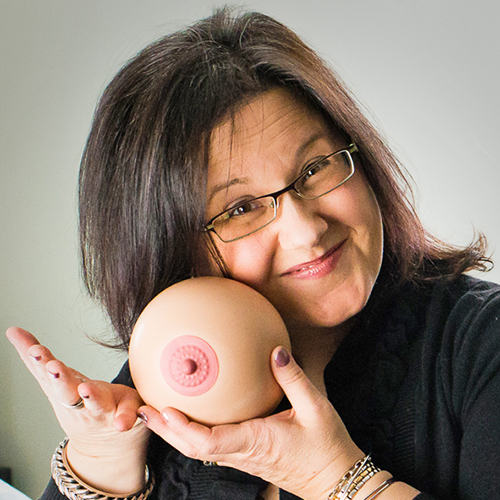

Jeanette Mesite Frem, MHS, IBCLC, RLC, CCE is an experienced childbirth educator, IBCLC-lactation consultant and retired birth doula. She started her career working with families while serving as a Peace Corps Volunteer in Côte d'Ivoire, West Africa in the early 90s. She loved that work so much she went on to receive a public health masters degree from Johns Hopkins School of Public Health, focusing her studies on nutrition for maternal and child health. Her two children were breastfed for more than 2 years each and Jeanette has experience pumping at work for both children and has supported more than a thousand families with feeding and pumping over the last 20 years.
Jeanette provides prenatal childbirth and breastfeeding classes at her office in Northborough, Massachusetts, as well as providing virtual and office feeding consultations. She also enjoys leading workshops for perinatal health professionals and mentoring those who work with families. If you have questions, feel free to email [email protected].
Topic: Pumping for Hospitalized Babies: 12 Keys to Supporting Families - [View Abstract]
1. List 10 smaller flange sizes and 6 types of silicone flanges they could try/suggest for their clients.
2. State the three main factors (FIT: flange, intensity and tempo) and multiple sub-factors that go into an effective pumping session.
3. Describe how to perform a flange fitting with a pumping client, using multiple flanges and inserts and assess which are the most appropriate for their client.
As lactation professionals, our overall goal is to help more babies get more human milk. Our work often includes supporting families with pumping. For many years, we have been told to "size up" for pump flange/breast shield size but many parents and lactation professionals are now finding that sizing down is much more effective for comfort, yield and pumping efficiency. But how small? Do silicone flanges work just as well as hard plastic? Does the shape of the flange influence milk removal and comfort? This session will show participants many different flanges sizes, several different types of flanges and video snippets of real parents pumping with some of them. The session will focus on how lactation professionals can actually do a flange fitting WITH a client, both in-person and virtually. Providing effective flange fitting services as a lactation professional can increase pumping comfort and significantly increase milk yield and extend the duration of lactation for many families.


Katherine is a Senior Lecturer at School of Sociology, Australian National University. Katherine’s particular areas of interest include the sociology of reproduction and motherhood, perinatal medicine, lactation sciences, human milk banking and donation. Her current projects include an Australian Research Council funded study on maternal experiences of lactation after infant death, and a Mayo Clinic funded research project on the communication with families regarding periviable infant resuscitation.
1. Describe current views regarding mothers’ experiences of lactation after infant death and consequent bereaved lactation care needs.
2. Explain how to assess if their organization's policies and practices adequately respond to bereaved families’ lactation needs.
3. Describe practice tips and techniques to enable them to better inform and support bereaved families to make decisions about their lactation care and management.
Every day, around the world, many mothers are faced with the complex task of managing the initial onset, or continuation, of their lactation following a late miscarriage, stillbirth, neonatal or infant loss. This presentation explores findings from a multi-year, multi-site Australian study conducted with bereaved families and health professionals that confirmed the limited nature and scope of lactation care currently available to bereaved families.
This presentation will provide evidence of the need and benefit of approaching lactation after infant death using a biopsychosocial care framework, so that bereaved families are able to make informed decisions from the full array of lactation management options that may be available including: suppression, sustained expression, breastmilk donation or using milk as memento. The challenges involved in providing bereaved lactation care will be acknowledged and discussed. Health professionals will be advised on what information and support bereaved families need and want, how and when this information may be best provided and who may be best placed to offer lactation care to bereaved families.


Kristin is a Licensed Clinical Social Worker and IBCLC in private practice in central NJ. Her practice specialties are low supply, maternal and infant mental health, and the intersection of ethnicity, sexual orientation, and gender in the care of the new family. She has spoken on various lactation, mental health, and equity topics for USLCA, the Lehigh Valley Breastfeeding Association Conference, the Appalachian Breastfeeding Conference, LPPEC, LC in PP, and for LLL of the Garden State. She designed and taught a training course on Mental Health First Aid for Perinatal Providers. She has been a featured speaker on several lactation related podcasts.
She is the mother of two children who nursed full term despite maternal IGT, and who are now 16 and 13. She is an anti racist LGBT+ activist, a member of transformative works fandoms, and makes fighting for a better world part of her daily life.
1. Describe the connection between trauma and eating disorders.
2. Explain how eating disorders present in the perinatal client.
3. Describe lactation specific challenges for clients with eating disorders.
4. Explain the process of screening for eating disorders and make appropriate referrals.
As lactation professionals, we see clients who are experiencing many challenges during the perinatal period. Clients with eating disorders are uniquely at risk, as are their babies. This presentation will educate the perinatal professional about how eating disorders present in the childbearing year and beyond. It will explore the connection between trauma and disordered eating, and teach how to be a trauma informed provider for eating disordered clients. It will discuss the specific and unique challenges the person with an eating disorder may have during lactation, including postpartum body image, elimination diets, and provider bias. The learner will gain the skills needed to screen for disordered eating and provide culturally humble and appropriate referral for congruent care.
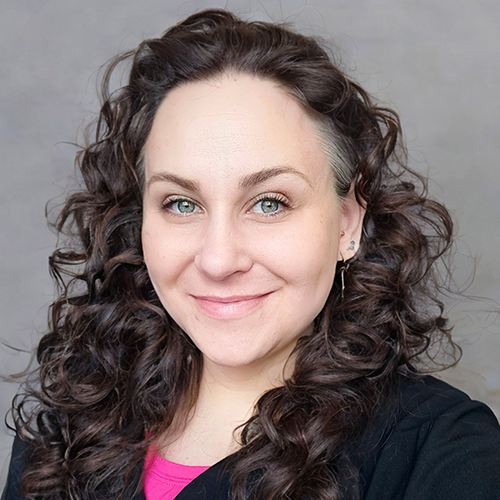

Megan Dunn is an experienced Lactation Consultant, infant feeding specialist, and Health Educator with nearly two decades of experience providing comprehensive lactation education and clinical care. With a Bachelor of Science in Anthropology and Sociology and a minor in Communication, Megan offers holistic, evidence-based care and develops innovative care plans in a Trauma-Informed environment. Megan is an award-winning breastfeeding advocate, currently serving as the President of the Oregon Washington Lactation Association, and has successfully implemented and developed clinical lactation services and Medicaid billing for Public Health lactation care.
Topic: Navigating PCOS During Lactation: Solution Focused Strategies and Equity in Care - [View Abstract]
1. List the functions a healthy microbiome regulates.
2. Describe symptoms of microbiome imbalance.
3. Describe how to create and communicate an appropriate care plan for your patient/client according to your scope of practice.
The billions of unicellular organisms which form a symbiotic relationship with our bodies provide essential functions which regulate, modulate, and maintain homeostasis. The microbiome has an essential role in prompting a proper immune response, maintaining adequate digestion and metabolic function, managing inflammatory status, supporting mental health, and many more functions which are required for good health. Dysbiotic conditions during the perinatal period are common and impact the infant feeding relationship.
In this presentation, participants will learn about the functions of the microbiome as it relates to lactation and infant health as well as the consequences of dysbiosis and its impact on lactation/infant feeding.
Additionally, participants will learn how to address dysbiotic conditions within their profession’s scope. This presentation provides clinically applicable information and recommendations that participants can apply when providing lactation education and developing care plans.


Melissa Cole, MS, IBCLC, RLC is a board certified lactation consultant, neonatal oral-motor assessment professional, and clinical herbalist in private practice. Melissa has been passionate about providing comprehensive, holistic lactation support and improving the level of clinical lactation skills for health professionals. She enjoys teaching, researching and writing about wellness and lactation-related topics. Melissa holds a bachelor of science degree in maternal child health and lactation consulting and her master’s work is in therapeutic, clinical herbalism. Melissa actively conducts research and collaborates with several lactation and health care professional associations. Before pursuing her current path, Melissa’s background was in education and cultural arts, which has served her well in her work as a lactation consultant and healthcare educator. She loves living, working and playing in the beautiful Pacific Northwest with her 3 children.
Topic: Beyond Fenugreek: An Individualized Approach to Dietary and Herbal Galactagogues - [View Abstract]
Topic: Beyond the Basics of Latch: Support Strategies for Helping Babies when the Basics Aren’t Enough - [View Abstract]
Topic: Common Infant Digestive Health Concerns and Useful Support Strategies - [View Abstract]
Topic: Connection and Care: Virtual Support for Tongue-Tied Infants - [View Abstract]
Topic: Feeding is Movement: Activities for Supporting Optimal Infant Oral Function - [View Abstract]
Topic: Infant Gut Health: Common Concerns and Useful Support Strategies - [View Abstract]
Topic: Infant Oral Assessment: Exploring Anatomy and Function Beyond the Frenulum - [View Abstract]
Topic: Low Milk Production Detective Work: Assessment and Care Plan Considerations - [View Abstract]
Topic: Nature’s Nurturers: Plant Medicine for Perinatal Mental Health - [View Abstract]
Topic: New Thoughts on Infant Pre and Post-Frenotomy Care - [View Abstract]
Topic: Placenta Medicine as a Galactogogue: Tradition or Trend? - [View Abstract]
Topic: Thinking Critically About the Use of Clinical Lactation Tools - [View Abstract]
Topic: Will It Hurt? Frenotomy Aftercare Strategies to Optimize Healing Outcomes for the Newborn - [View Abstract]
1. List at least 3 reasons milk production many be compromised.
2. Describe at least 3 diagnostic tools and assessment techniques for identifying low milk production etiology.
3. Explain at least 3 ways to evaluate if care plan strategies are working for milk production optimization and the parent.
Concerns about low milk production can be frustrating for parents and clinicians alike. There are many reasons milk production can be compromised. How can lactation and health professionals best assess the root causes of the production issue at hand and suggest targeted, sustainable ideas? This presentation will help clinicians think about the ‘detective work’ needed to help provide personalized care. Through interactive case studies, participants will critically-think about assessment and care plan strategies for the families in their care that are struggling with low milk production.


Monica Esparza is currently the Executive Director of the New Mexico Breastfeeding Task Force. She is a trained Certified Lactation Counselor and Community Interpreter who previously served families as a breastfeeding peer counselor for more than 10 years, providing peer-to-peer support to lactating families through the Department of Health Women's, Infant & Children's program both individually and in the hospital setting. She participated as a Leader in the Health Connect One Birth Leadership Academy and the NM Women of Color Leaders in Non-profit. She has served on different boards and currently sits on the National College of Midwifery Board and the New Mexico Certified Nurse Midwives Board. As a Mexican, Immigrant woman living in the south valley of Albuquerque, she brings a grassroots community approach and an equity lens into her every aspect of her work. She understands the importance of centering families and Black, Indigenous and People Of Color as a crucial step into achieve birth equity. She enjoys hiking and gardening with her husband and 2 children.
1. List two ways that home visitors can help bridge the gap in lactation care and improve breastfeeding/chestfeeding outcomes.
2. Explain the importance of supporting the BIPOC community to access higher lactation education.
3. List 2 steps that can be taken to increase lactation support in your community.
For low-income, immigrant, and rural families and their infants, access to lactation care is a critical need at one of the most vulnerable times of a child’s life. A root cause of this significant gap is the lack of lactation professionals and lactation-support training for healthcare professionals and home visitors. Knowing that home visitors are critical for families, the New Mexico Breastfeeding Taskforce (NMBTF) conducted a survey in 2020 to ascertain how to help increase home visitors’ knowledge and confidence about lactation issues so they can better support families. The survey results indicated that only 42% of home visitors had ever attended a breastfeeding class and that 100% of those surveyed could benefit from the support of lactation professionals in the communities they serve. In order to address this gap, NMBTF developed a combination of the Home Visitor Lactation Support Program and the Certified Lactation Counselors (CLC) Training programs for Lactation Education and Support Expansion in NM. First, NMBTF is piloting comprehensive lactation training for home visitors that addresses the basic lactation education they need to support the families they serve. The training program is evidence-based and includes culturally sensitive parent education, knowledge about latch and positioning, and guidance for accessing related local community resources. NMBTF partnered with home visiting programs to provide lactation education to their home visitors. Second, NMBTF worked to recruit women of color for the CLC training and provide financial aid. As CLCs, they will then be able to provide a network of expanded and enhanced lactation support in the underserved communities they serve, for their clients, and act as a resource to other home visitors.
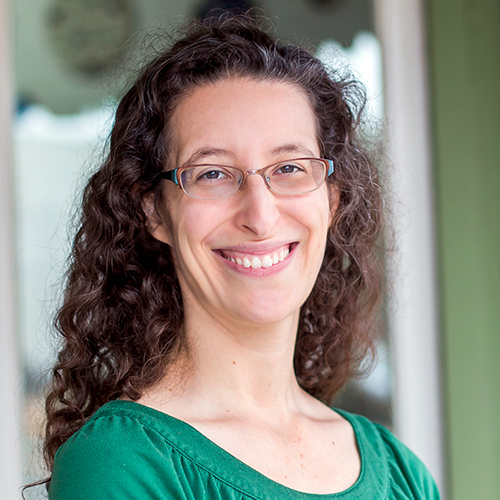

Rebecca began her lactation journey with her undergraduate senior thesis evaluating a breastfeeding education program. After working as a doula and childbirth educator, she decided to pursue a Master’s in Public Health in Maternal and Child Health. There, she was also in the first class of the Mary Rose Tully Training Initiative, a Pathway 2 IBCLC training program. After graduating, she first worked full time as an IBCLC in a large academic hospital. She then became the Director of Lactation Services at a busy freestanding birth center. After making the move to a new state, she went into private practice part-time, and expanded her focus on a longtime passion: providing education for IBCLCs, lactation trainees, and health care providers. She also has special interests in research, support for the LGBTQ+ community, and coalition-building to advance and support IBCLC services.
1. List 3 ways accurate, thorough charting can improve patient care.
2) Name 4 key components of a lactation note.
3) Describe how to chart when a patient disagrees with the plan of care.
Many lactation consultants enter practice without ever being fully oriented to lactation-specific note-taking/charting. If you come from a peer counseling background where formal medical charting wasn’t used; a health care professional background that didn’t focus on lactation; or you’re an IBCLC who has been in practice for a while and is looking to level up your note taking, this talk is for you. We will discuss three common challenges: making charting something that improves your patient care (instead of just being a chore); documenting in difficult clinical and legal situations; and balancing your visit time between note-taking and interaction with patients. And we’ll practice with some real-life scenarios to put our skills into practice.


Rosann Edwards is an Assistant Professor in the Department of Nursing and Health Sciences at the University of New Brunswick Saint John, an experienced front line public health nurse, and lactation consultant. She is also a third-degree karate black belt, and mother of boys. Rosann’s research and community work focuses on breastfeeding, the transition to motherhood, maternal satisfaction with breast/infant feeding, mothering in the shelter system, and empowering vulnerable populations of women and their children. She is the co-editor of the recent Demeter Press Anthology Breasts across Motherhood: Lived Experiences and Critical Examinations.
Topic: Supporting Older First-Time Mothers with Breastfeeding and Becoming a Mother: Insights for Clinical Practice - [View Abstract]
2. Following this session participants will be able to describe factors affecting the decision-making process of the first-time mothers >35 years of age who participated in our study surrounding infant feeding practices.
3. Following this session participants will be able to explain the role of knowledge, control, trust, and ownership in both early breastfeeding and transition to motherhood for first-time mothers >35, and how health care providers can effectively support this demographic in clinical practice through mother-centred and flexible interventions.
Mothers 35 year of age or older are the fastest growing demographic of new mothers in many developed countries, & a steadily emerging global trend. The quality of a mother's breastfeeding experience has the potential to affect breastfeeding duration and factors that promote healthy maternal-infant attachment, infant growth and development, and maternal mental health. There is a lack of understanding of how older first-time mothers make decisions about breastfeeding and mothering. Learn more about new research that looked to answer the research question ‘What factors affect how first-time mothers >35 years of age make decisions about breastfeeding and the motherhood in the first six months postpartum?’ The findings provide a framework to work in partnership with older first-time mothers to enhance positive breastfeeding experiences, adaptation to motherhood and positive mental health outcomes through strategies that promote resiliency and shared decision-making around early postpartum care, and breastfeeding/infant feeding supports. Key components include helping mothers identify what satisfaction with breastfeeding is for them, encouraging increased levels of knowledge, control, trust and ownership, supporting them in redefining their core self, and providing realistic, evidence-based information.
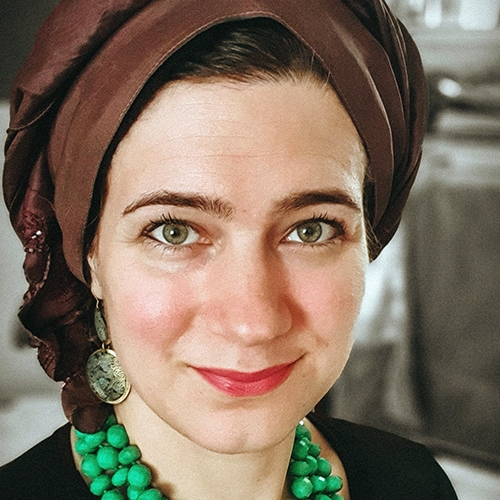

Zainab Yate is a Biomedical Ethicist, with a specialist interest in infant feeding. Zainab is Vice Chair and named qualitative lead on a paediatric flagged Research Ethics Committee Panel for the Health Research Authority (HRA) in the UK, reviewing research protocols for over a decade. Zainab's previous working background is in Public Health and Commissioning the National Health Service (NHS) in the UK. She had also been a volunteer breastfeeding peer supporter with the NHS for a number of years, is the owner-author of the resource site for mothers and healthcare practitioners on Breastfeeding / Nursing Aversion and Agitation and author of "When Breastfeeding Sucks".
Topic: Breastfeeding / Nursing Aversion and Agitation (BAA) in breastfeeding mothers - [View Abstract]
Topic: Navigating the Future: Bioethical Challenges in Anticipated Integration of AI in Lactation and Breastfeeding Services - [View Abstract]
Topic: Research Ethics & Infant Feeding: How to Utilise the Four 'D's of a Brief Assessment - [View Abstract]
1. Describe the primary principles of research ethics and application of these, and how to review studies in the field of breastfeeding, lactation and infant feeding.
2. Explain how to use the '4 D’s of brief assessment’ to assess a research protocol or peer review published paper, and the importance of transparency of Declarations of Interests in research.
3. Describe the impact of the gap of participant enrolment in research as it pertains to pregnant and breastfeeding women, and the impact of this on our field literature.
Research ethics institutions protect the rights, safety, dignity, and well-being of research participants, and also have a duty to ensure ‘good’ research. Conducting poor research is unethical, and there are many studies in the field of breastfeeding and lactation that have been challenged when published, simply because their findings and results are, at best, incorrect. Proper definitions, project design and industry conflict of interest are important factors, and these can be critiqued and challenged at the ethical review stage.
Participants will learn how to use the method of the '4 Ds of a Brief Assessment' to scrutinise the research questions, definitions of words used, disclosures and even the research methodology to decide if a study will have both scientific and ethical merit in the field of breastfeeding and lactation. If you are a donor, an applicant, a manager or a researcher you need to be aware of the process of ethical review of research protocols, the possibility of specialist review, and also of how to sift through published studies that have questionable study designs, and the findings.
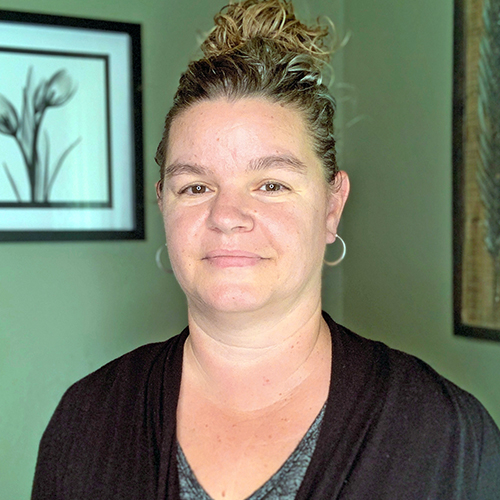

Christine Staricka is a Registered, International Board-Certified Lactation Consultant and trained childbirth educator. As the host of The Lactation Training Lab Podcast, her current role focuses on training and coaching current and aspiring lactation care providers. Christine created and developed The First 100 Hours© concept, an early lactation framework designed to support lactation care providers with the knowledge and mindset they need to help families optimize early lactation. Christine worked as a hospital-based IBCLC for 10 years and has over 20 years experience providing clinical lactation care and support. She provides clinical lactation care to families at Baby Café Bakersfield and serves as its Director. Christine recently completed 6 years of service on the Board of the United States Lactation Consultant Association (USLCA.) She holds a Bachelor's Degree from the University of Phoenix. She has been married for 27 years, lives in California, and is the proud mother of 3 amazing daughters.
Topic: Tongue-Tied and Troubled: A Breastfeeding Journey at Risk - [View Abstract]
Topic: Your Responsibility to the WHO Code: Evaluating Real-World Scenarios for Compliance - [View Abstract]
1. List 3 specific types of scenarios which are covered by the WHO Code.
2. Apply a rubric of WHO Code guidelines to evaluate components of a real-world case study of a company interacting with the public.
3. Explain 2 action steps to address violations of the Code; and identify 1 case study describing a real-world situation where a company acts within WHO Code guidelines.
The International Code of Marketing of Breastmilk Substitutes (WHO Code) exists to protect health during a vulnerable period of life. In the course of practicing health care in the service of families with babies and young children, health care workers of all disciplines will encounter situations which should be guided by the WHO Code. It is in the interest of families and health for all health workers to be aware of the WHO Code and what it requires, as well as to be able to evaluate a situation where a commercial entity is interacting with the public regarding infant and young child feeding. Using a rubric of WHO Code guidance, the participant will practice evaluating real-world case studies and determining whether or not they are in compliance with the WHO Code.


Anna Le Grange is an International Board Certified Lactation Consultant, Registered Pediatric Nurse, Mindfulness teacher and Author. She has worked with new families for over 20 years in a variety of clinical roles. Anna brings her passion for psychology, neuroscience and mindfulness into her lactation support work and facilitates other professionals to incorporate emotional well-being tools into their own lactation practice. Mother to 3 children, Anna breastfed her 3rd child following breast reduction surgery and experienced first-hand, the emotional challenges that so often relate to infant feeding complexities. She used her personal experiences alongside mindfulness and lactation knowledge, to create a toolbox of techniques for breastfeeding families, which she includes in her courses and book, The Mindful Breastfeeding Book. Anna believes whole-heartedly in prioritizing calm and connection within our breastfeeding support practices, both for our clients and ourselves. Anna is currently studying for a MSc in Positive Psychology at Buckingham New University and has spoken at various events including the Gold Lactation, ILactation Conference and Nurturing The Future.
Topic: Being Mindful: Case Studies of Mindfulness Tools in Clinical Lactation Practice - [View Abstract]
Topic: Breast/Chestfeeding After Breast Reduction - [View Abstract]
Topic: Working With Anxious Parents and Fussy Babies - [View Abstract]
1. Participants will be able to describe how breast reduction surgery affects lactation.
2. Participants will be able to describe some of the experiences faced by those breastfeeding after reduction.
3. Participants will be able to list what practical steps can be taken to support those wishing to breastfeed or chestfeed after surgery.
4. Participants will be able to explain why understanding the brain/body connection can help improve the experience of those breastfeeding after breast reduction.
5. Participants will be able to write a basic feeding with someone planning to breast or chestfeed after reduction surgery.
With breast surgery becoming more common, it's important for professionals to understand how it can affect lactation and the experience of breastfeeding or chestfeeding parents. Both an IBCLC and Mum who breastfed her daughter after having breast reduction surgery, Anna Le Grange talks through the implication of breast reduction surgery on lactation, covering both the physiological and psychological challenges that parents face. As well as sharing the experiences of those who have had breastfed after surgery, Anna introduces practical steps that supporters and professionals can take to help their clients define and strive for their breastfeeding or chestfeeding goals in a gentle and realistic way.


Mary Ryngaert is a Pediatric Nurse Practitioner since 1987 and an International Board-Certified Lactation Consultant since 2000. She received her MSN in the Primary Care of Children at Catholic University in Washington, DC. In her clinic at the University of Florida, she sees families for breastfeeding issues for the duration of the breastfeeding journey and provides education for pediatric residents. She is active in the local breastfeeding coalition and serves as a consultant/coordinator for the hospital Baby Friendly program. She has a special interest in supporting the development of peer counselors, especially women of color, to provide breastfeeding support within the community. She served as the Chair for the National Association of Pediatric Nurse Practitioners (NAPNAP) Breastfeeding Special Interest Group for six years and is a delegate to the US Breastfeeding Committee for NAPNAP . She was a co-author for the 2018 update to the NAPNAP Position Statement on Breastfeeding.
2. Describe two activities that will assist breastfeeding families to provide adequate and ideal nutrition to their infants for each of three scenarios discussed in the presentation.
3. List three resources available to families who are experiencing low milk supply.


Shel works part time for the NHS in northwest England, and has four adolescents.
In addition to this, she runs a small private IBCLC practice specialising in the unsettled baby, those with faltering weight and those who are formula fed, and also holds a variety of consultant and trustee roles in various national and international organisations for advocacy and education around infant feeding; these include being Clinical Director for the breastfeeding support app AnyaHealth, being co-chair of Nursing Matters, an advocacy organisation for the breastfed infant, and being vice-chair of the UK Association for Milk Banking.
Shel has been on the development committee for 3 NICE guidelines including one on Faltering Growth, has co-authored 3 Cochrane systematic reviews, and written a book “Why Infant Formula Feeding Matters” (2022). In 2021 Shel began work towards a PhD in further understanding how best to support families with unsettled babies in universal services, which she conducts part time alongside her other commitments.
She teaches in person and online, both in her NHS role and in the consultant roles, and thoroughly enjoys sharing the knowledge she has acquired to improve the experience of families everywhere.
2. Name 3 elements of a collaborative care plan created with the family
3. Describe 3 critical times for following up with family regarding baby's progress and the care plan
4. Identify how to calculate a baby's supplementation needs using data procured during the consultation
Understanding how to develop effective and supportive evidence-based care plans for babies whose weight and/or growth is faltering, is absolutely key to the toolkit of those who are working with breastfeeding babies. Find out more in this presentation.


Lyndsey is an experienced paediatric nurse, children’s public health nurse, International Board Certified Lactation Consultant, Holistic Sleep Coach, researcher and responsive parenting advocate. She has worked in hospitals, clinics, the community and within clients’ homes for 20 years, serving within the UK NHS, in private practice and voluntarily.
The co-founder and clinical director of the Holistic Sleep Coaching program, Lyndsey regularly teaches internationally, as well as providing mentorship for newer sleep coaches. She is passionate about responsive feeding, gentle parenting and promoting parental confidence and well-being.
With Professor Amy Brown, she is the co-founder of Thought Rebellion – an education and publishing company seeking to inspire, challenge and equip professionals and writers in the parenting, lactation and perinatal space with an evidence based revolution.
Lyndsey is currently a PhD researcher at Swansea University, exploring the needs and challenges of medically complex breastfed infants and children. In 2019 she set up the Breastfeeding the Brave project to raise awareness of the unique breastfeeding needs of chronically, critically, and terminally ill children in the paediatric setting. The mother of a childhood cancer survivor, she often talks about the impact of chronic serious illness on families, and seeks to support other families living through a serious childhood illness.
Lyndsey is a respected international speaker and teacher, and regularly speaks out against the dominant sleep training culture, as well as advocating for the rights of families to receive high-quality, compassionate and expert support. She is the author of Holistic Sleep Coaching (2018), Let’s talk about your new family’s sleep (2020), Still Awake (2021), Breastfeeding the Brave (2022) and co-author of The Writing Book (2022).
Topic: Breastfeeding Children with Cancer - [View Abstract]
Topic: More Support in a Coffee Shop Than in the Hospital: Experiences of Breastfeeding Children With Medical Complexity - [View Abstract]
Topic: Supporting Families With Sleep While Optimising Attachment and Responsive Feeding - [View Abstract]
Topic: You Can't Sleep With Your Foot On The Gas Pedal: How To Improve Sleep By Tapping Into Calm - [View Abstract]
Objective 1: Describe the context of sleep ‘problems’ within modern parenting.
Objective 2: Explain the variety of ways parents currently receive information about sleep.
Objective 3: Describe the current evidence base regarding mainstream sleep strategies.
Objective 4: List at least 3 basic tools to support parents with their sleep hygiene.
Many parents feel confused about how to approach sleep with their infants. There is a lack of consistent, evidence-based information about infant sleep, and in the context of ever-increasing contextual pressures, this can lead many parents to ask for help with sleep. However, sleep information that is respectful to mental health, attachment and breastfeeding can be hard to find, particularly when national guidelines seem to advocate approaches that promote a non-response. Perinatal professionals are uniquely placed in positions of trust with families, and possess advanced skills in listening, counselling and providing information. They are therefore well-placed to provide information to families about sleep proactively, which may reduce parental stress and frustration, and lead to fewer families becoming desperate and turning to solutions that include cessation of breastfeeding, separating parents and infants, and leaving infants to cry.


Alyssa has been helping parents and babies with breastfeeding since 2002, first as a La Leche League Leader and since 2009 as an International Board Certified Lactation Consultant.
Alyssa works in private practice serving clients worldwide, primarily through telehealth. She is the author of Breastfeeding Without Birthing: A Breastfeeding Guide for Mothers Through Adoption, Surrogacy, and Other Special Circumstances and a professional supplement to the book, The Breastfeeding Without Birthing Professional Pack online training.
Alyssa has authored articles for The Journal of Human Lactation: The Three Step Framework for Inducing Lactation and Successful Co-Lactation by a Queer Couple: A Case Study. She has also authored articles for La Leche League’s Leader Today and Breastfeeding Today magazines, and Adoptive Families magazine. She is an international speaker on the topics of inducing lactation, relactation, and other related topics. Alyssa is the proud mother of three breastfed children, two by birth and one by adoption. She lives in St. Louis, Missouri, USA.
Topic: Demystifying Inducing Lactation: How Lactation Happens Without Pregnancy and Birth - [View Abstract]
Topic: ReLATCHtation: Transitioning the Exclusively Bottle-fed Baby to Nursing - [View Abstract]
Topic: Supplementation: A Goldilocks Dilemma - [View Abstract]
Topic: The Proficient Pumper - [View Abstract]
1. List 2 circumstances which can result in long-term lactation insufficiency
2. Describe 2 ways to determine whether baby is getting enough milk
3.Create a plan to supplement a baby’s intake, including volume calculation and supplementation device selection
Too much supplementation means baby is getting less of the parent’s own milk, and eventually, there is less milk production for the parent. Too little supplementation means baby is not fed enough. So how do we find that juuuuust right amount? Or determine whether supplementation is really necessary? When it is necessary, how do we supplement in a way that preserves long-term breastfeeding outcomes? This presentation can serve a guide for if, when, how and how much to supplement direct breastfeeding with additional human milk or infant formula.


Carmela is a family medicine MD, bachelor´s degree in Public Health Education, and IBCLC since 2005. She is also a BFHI Evaluator and the co founder and past president of the Spanish Lactation Consultant Association (AECCLM). She works in a private Family Wellness Clinic, Raices, as person in charge of the lactation program, which includes two IBCLCs attending breastfeeding families and an extensive offer of breastfeeding training for health care professionals and breastfeeding peer counsellors. The team has trained over three thousand doctors, midwives and nurses from both the Spanish National Health Service and the private sector in Spain. She is a frequent lecturer at national conferences, and has also lectured internationally, both on-site and online. She is the author of several scientific papers on breast pain, mastitis and tongue tie. She is also the author of a breastfeeding/parenting book, “Amar con los Brazos Abiertos” (To Love with Open Arms). She is married to Carlos and they homeschool their four children.
Topic: Assessment and Management of Mastitis - [View Abstract]
Topic: Getting Milk Production off to a Good Start - [View Abstract]
Topic: Management of Chronic Breast Pain: Holistic Approach - [View Abstract]
Topic: The Art and the Science: A Critical Look at the Physiology and Management of Mastitis - [View Abstract]
1. Explain the importance of an ecosystemic approach to the dyad for adequate evaluation and management of breast and nipple pain
2. Describe 3 clinical causes of breast and nipple pain
3. Name 2 strategies for managing the main causes of breast and nipple pain, including which patients/clients will require referral to other healthcare providers
Although pain is not a normal part of nursing, many mothers experience this difficulty at some point in their breastfeeding journey. It is one of the main reasons for breastfeeding consultations, and an important cause of early, undesired weaning, especially if the infant is not thriving. Assessment of pain during lactation differs significantly from other types because it is a system we must explore – not a single patient but the interaction between the mother and her infant (that is, the dyad). In this talk, an ecosystemic overview of the evaluation and management of breast and nipple pain is offered, based on current research and clinical practice. With appropriate support, the vast majority of dyads are able to breastfeed comfortably and effectively.


Allison Tolman has experience as an LPN, CLC, Certified Birth Doula, Certified Childbirth Educator, and IBCLC. She has found a passion for breast pumps and now works exclusively with mothers who are combining breastfeeding and pumping while returning to work after maternity leave. She (along with an engineer) developed a device used to test breast pumps and has enjoyed sharing her data and findings with her online community and helping mothers choose and use the best breast pump for them. Her husband is active duty military in the US Army and together they have 3 little boys. They have lived all over the US and spent 3 wonderful years in Belgium. She is also pursuing a bachelors in Maternal Child Health: Human Lactation at Union Institute & University.
Overall Objective: Participants will be able to identify important features of a breast
pump to effectively help mothers choose and use a pump appropriately for sufficient
and practical milk removal.
1. Explain terms and types of breast pumps
2. Describe qualities that affect breast pump performance as well as the practical
implications of different pumps
3. Evaluate strategies for appropriate breast pump selection and use
The overwhelming amount of breast pumps on the market and lack of evidence-based pumping research make it difficult for both parents and professionals to know how to choose and use breast pumps effectively. After conducting pilot testing on over 50 breast pumps with a custom designed Breast Pump Vacuum Monitoring System, we will use the graphs and data gathered to better understand the differences between pumps and which are most effective for specific pumping scenarios. We will dive into the science of breast pumps, the practical use of different types of pumps, and clinical aspects of counseling pumping parents.


Annette Leary is a registered nurse with over 33 years of experience working in Maternal Child Health (pediatrics, postpartum, home health care and level 2 NICU). She became an IBCLC in 1995. She owns a private practice providing office, in home, and virtual visits at Orlando Lactation and Wellness. In 2022 she formed a collaborative company Baby B.L.I.S.S. : Central Florida Feeding Collaborative where she and her business partners help families prenatally, antepartum and post partum navigate the growth, development and feeding journey of their children. She began her craniosacral therapy training through the Upledger Institute in 2015, taking advanced maternal and pediatric specialty classes. Annette has found great improvement incorporating craniosacral therapy techniques with lactation consulting. Helping Families Latch onto Parenting has always been her mantra.
Topic: Where to Start: Creating a Lactation Care Plan for Complex Breastfeeding Cases - [View Abstract]
1.List 3 key components to designing a care plan
2.Describe 3 examples of goals for a lactation care plan
3.Describe 3 signs of a successful action plan
Designing a sustainable proposal of lactation care involves many components. The parents are the main leaders in constructing this plan. Family dynamics that include the physical, emotional and mental health of both parent and child make up the key layout. Setting client-centered goals, developing strategies, outlining tasks and setting up routines are important to accomplishing their personal goals. Families often seek a holistic integrative approach that includes personal goals, support networking, comfort, and collaborative resources that make up their action plan of care. This program will review several complex case studies and how the families designed their plan of care with the guidance and understanding of a team approach.
Accreditation
CERPs - Continuing Education Recognition Points
Applicable to IBCLC Lactation Consultants, Certified Lactation Consultants (CLCs), CBEs, CLE, Doulas & Birth Educators. GOLD Conferences is designated as a Long Term Provider of CERPs by IBLCE--Approval #CLT114-07. This program is approved for 75 CERPs (70 L-CERPs & 5 E-CERPs).
The presentations in this program were originally offered as part of the following activities:
- Advancing Human Milk & Breastfeeding Practices in the NICU / NICU Babies: Advancing Human Milk and Breastfeeding Practices
- A Whole Body Approach to the Clinical Management of Complex Breastfeeding Issues
- Breastfeeding and Medically Complex Infants
- Breastfeeding and the Substance-Exposed Infant
- Breastfeeding in the Early Weeks: Clinical Education Techniques
- Breastfeeding Medicine: Advancing Your Level of Care
- Got Breastmilk? Skills & Tools for Improving Low Milk Production
- Lactation 2020 Conference - Breastfeeding Continuing Education Bundle #8 (32.5 Hours)
- Lactation 2021 Conference - Breastfeeding Continuing Education Bundle #9 (29.5 Hours)
- Lactation 2022 Conference - Breastfeeding Continuing Education Bundle #10 (29.5 Hours)
- Lactation 2023 Conference - Breastfeeding Continuing Education Bundle #11 (29.5 Hours)
- Level-Up Your Lactation Skills / Assessment and Critical Thinking Skills in Action
- Managing Weight Gain in the Breastfed Infant
- Pain Assessment & Management During Lactation
- Parent-Centered Lactation Care
- Tongue-tie Symposium 2021
- Tongue-tie Symposium 2022
If you have already participated in any of these presentations, you are not eligible to receive additional credits for viewing it again. Please send us an email to [email protected] if you have any questions.
Additional Details:
Viewing time: 52 Weeks
Tags / Categories
(IBCLC) Clinical Skills, (IBCLC) Development and Nutrition, (IBCLC) Education and Communication, (IBCLC) Equipment and Technology, (IBCLC) Ethical and Legal Issues, (IBCLC) Infant, (IBCLC) Infant, (IBCLC) Maternal, (IBCLC) Maternal, (IBCLC) Pathology, (IBCLC) Pharmacology and Toxicology, (IBCLC) Physiology and Endocrinology, (IBCLC) Psychology, Sociology, and Anthropology, (IBCLC) Public Health and Advocacy, (IBCLC) Research, (IBCLC) Techniques, Allergies & Breastfeeding, Bonding and Attachment, Breast and Nipple Pain, Breastfeeding & Health, Breastfeeding Complications, Breastfeeding Multiples, Breastfeeding Strategies for the Preterm Infant, Breastfeeding Support, Breastmilk / Human Milk, Counseling Skills, Donor Human Milk for Preterm Infants, Drug & Alcohol Use, Ethics for Lactation Professionals, Family & Social Support, Fathers in Perinatal Care, Feeding Devices and Tools, Full-term Breastfeeding, Hypoplasia/Insufficient Glandular Tissue, IBCLC & International Code on the Marketing of Breast Milk Substitutes, IBCLC / Lactation Consultants, IBCLC in Private Practice, IBCLC Using Research, Induced Lactation & Relactation, Inequalities & Breastfeeding, Infant Anatomy & Physiology, Infant Sleep, Lactation & Breastfeeding, Lactation After Perinatal, Neonatal, & Infant Loss, Lactation Case Studies, Late Preterm Infants, LGBTQIA2S Families & Breastfeeding, Managing Milk Supply, Maternal & Infant Assessment, Maternal Anatomy & Physiology, Maternal Illness & Breastfeeding, Medications & Herbs, Peer Support for Breastfeeding, Pumping & Milk Expression, Sexual Health, Slow Weight Gain, Supplementation & Artificial Breast Milk, Supporting Sucking Skills, The Newborn Microbiome, Tongue & Lip Tie Assessment, Tongue-tie, Lip Tie & Structure, Weaning
How much time do I have to view the presentations?
- The viewing time will be specified for each product. When you purchase multiple items in your cart, the viewing time becomes CUMULATIVE. Ex. Lecture 1= 2 weeks and Lecture Pack 2 = 4 Weeks, you will have a total of 6 weeks viewing time for ALL the presentations made in that purchase.
- Time for viewing the talks begins once you purchase the product. For Live Webinars & Symposiums, the viewing period begins from when the live event takes place. Presentations can be accessed 24/7 and can be viewed as many times as you like during the viewing period.
What are bundled lectures?
- Presentations may be available individually or via a bundled package. Bundled lectures are a set of lectures that have been put together based on a specific category or topic. Some lectures will be available in both individual and lecture form, whereas others will be available only via a bundled lecture pack.
Will there be Handouts?
- YES! Each lecture comes with a PDF handout provided by the Speaker.
Some lectures include a Q&A, what does that mean?
- During our online conferences, presentations that occur live are also followed by a short 15 minute Question & Answer Session. The Speaker addresses questions that were posted by Delegates during the presentation. We include the recording of these Q&A Sessions as a bonus for you.
How can I receive a Certificate?
- If this presentation offers a certificate, once you are done viewing the lecture or the lectures within a bundle, submit your attendance record in order to be able to download your certificate. You'll be able to see which credits are offered for the lecture by hovering over the "Credits Available" link within the "Speakers & Topics" tab.
Professionals that selected this package also viewed

|
|

|




















